















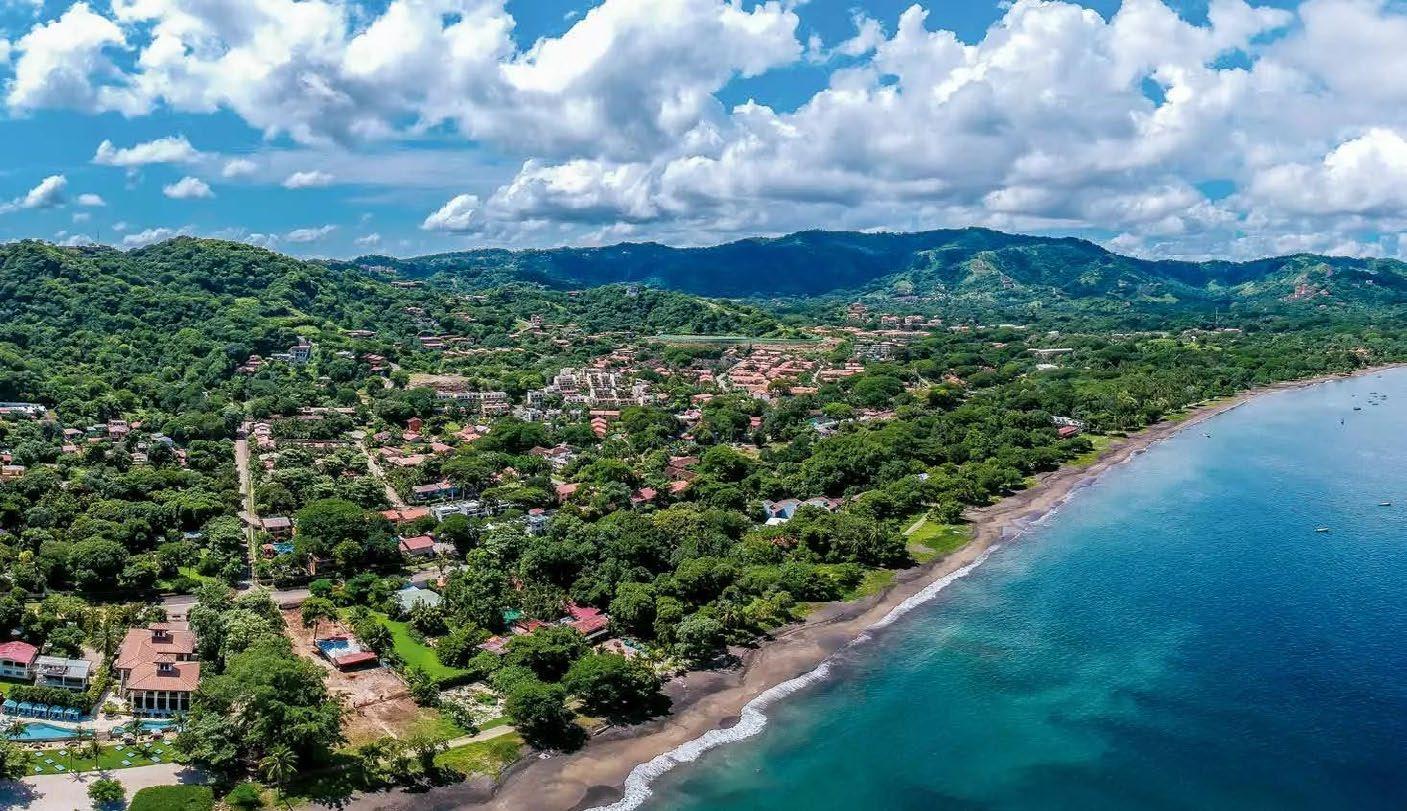
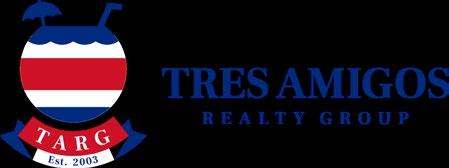
Lisa Farrell
Trading Paradises
Joseph Emanuelli

Never Looked Back
Herb DeMars
Snowbirds in Paradise
Alain Mouquet

A French Canadian Welcome
Theo Veenstra


It's a Lifestyle
Michael Mills


The Adventures
Continue
Explore our listings:e


Will Mathews
Not a Cliche'
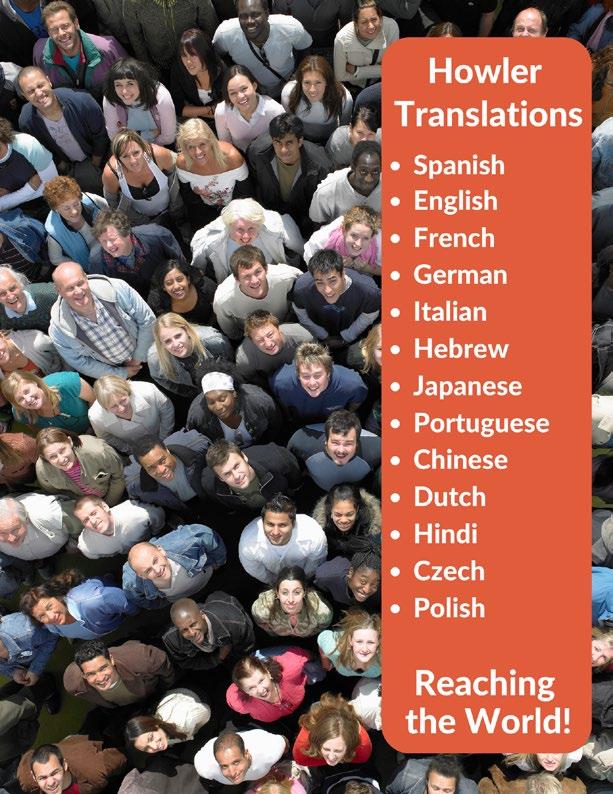
Spanish 84,054 German 60,935
Italian 46,949 Portuguese 37,628
Hebrew 36,135 French 1,033
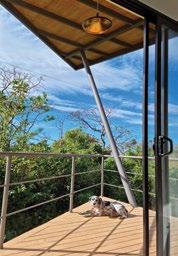
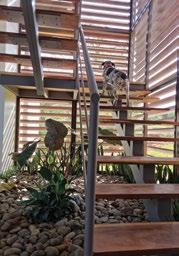
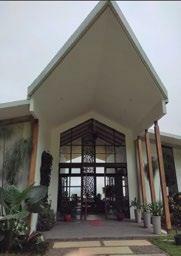
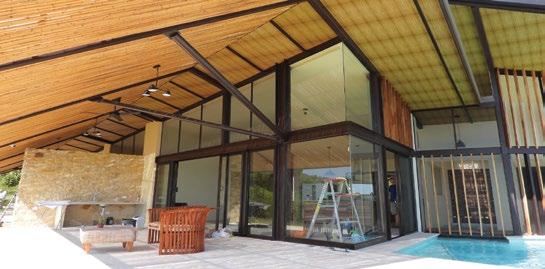

Hello readers, We appreciate all the loyal readers who engage with us on a monthly basis. As Howler is soon entering our 27th year of publishing, we are grateful to our readership and for the support of our advertisers who have made it possible for us to grow and reach out to a much broader worldwide audience.
Our topics are very broad, and reach sectors including tourism, culture and arts, surfing, health and wellness, and business. I get personal messages every day from people who have enjoyed and learned a lot from our contributors. In fact, a few years ago we were contacted by a Tica who said she has learned more about her own country by reading Howler articles than from her education. This is such a compliment to the writers and Howler staff.
Many have asked us if we will go into print again. Well, years ago I was told that print will go away one day. I laughed and said it will always remain. But I found that print was getting more and more difficult to deal with. The supply chains, cost of fuel for delivery, and significant production costs made it increasingly difficult to sustain. This actually turned out to be a blessing for us.
by John QuamAddressing the issue of print very early on in 2020, we made the decision to go digital. I am in touch with many major publishers worldwide discussing digital publications and missing out on the print. It became very evident that in order to reach the masses we had to adjust our way of thinking and production. It is not possible to reach the masses with print. The costs and logistics are too challenging.
I know that over the past 27 years many readers have kept all of Howler's printed magazine issues. It is an honor to be in the club of the collected!
As we grow we seek to cover the most interesting things in Costa Rica. With this in mind we are looking to showcase your experiences of Costa Rica. All of us have experienced many different aspects of traveling here or living here. Tell us about yours!

The Howler used to be considered a Guanacaste publication, and initially confined mostly to Tamarindo. Growing up has had its challenges and rewards. With the maturity of the Howler, we strive to shine the best light on Costa Rica. We cover the country and surrounding neighbors. This region of the world is truly something to experience.
Many people pack up and arrive in Costa Rica to live. Ta da! We are here … now what? Did you do your due diligence, or are you just winging it?

Tell us!
• What have your experiences been like?
• Did you discover a great adventure to share?
• Have you succeeded in dealing with the difficult nature of business here?
• What have you done to live peacefully and grow?
• What has education been like for your children? How do the schools rate?
• Your experience with buying property?
• Traffic and police?
• The legal system?
• Adjusting to the dollar devaluation? Are you cutting back on anything?
• Do you have rental property?
• Have you ever had to evict a tenant?
Sharing your experiences helps others. Become a storyteller and let us publish what you share with Howler readers.

Storytelling establishes common ground and empathy.

Sharing your story has the potential to help someone else feel less alone. Our stories are powerful because they evoke compassion, even among strangers. We also create opportunities to understand others better and to cultivate empathy towards them.
Your experiences matter. Why is it important to share them with others?
A UK study by Lambert et al found that verbalizing happiness increased and sustained the well-being of participants — well beyond that of simply having the experience. Shared experiences encourage us to become more aware, more mindful of ourselves and our feelings.
 John B. Quam
John B. Quam
Sharing your story has the potential to help someone else feel less alone.
February issue has a visually spellbinding treat in store for readers, unlike anything we’ve featured before. Peter Grobe’s photos take “larger than life” to unfathomable extremes that could find you at once mesmerized and terrified. It’s a rare opportunity to see for yourself why Costa Rica was a macro photography paradise for the globetrotting shutterfly.

Our Travel & Adventure section takes you outside the country to the captivating “end of the world” in Tierra del Fuego. Then closer to home, you’ll get a birds-eye view of some favorite Guanacaste locales that might see “gyrocopter adventure” being added to your bucket list.

Captain Paul Watson imagines what a biocentric lifestyle would look like, and the lifesaving impact on our planet’s human and animal inhabitants. A selection of signature pieces from two different visual artists is yours to enjoy in our ACE section this month, while an eclectic array of historical photos offer a rare glimpse at people and places in Costa Rica during the early 20th century.
Peter Grobe describes himself as an ambitious amateur photographer who is passionate about jumping spiders. He regards them as the perfect model, “less for the scientific aspect than for their sheer beauty.” Indeed, without exception, each of the tiny creatures he captures
using specialized macro techniques is gorgeous in some exquisitely shocking way when viewed through his lens.
When Peter is away from his home in Kilchberg ZH, Switzerland, there’s a good chance he’s on one his “jumping spider safaris,” seeking to photograph yet another species of that globally widespread insect.
Sylvia Barreto Benites. Writer, teacher, tutor and founding director of IREN Renaissance Institute, a Costa Rican nonprofit organization focused on innovative learning solutions for children and adults.
Debbie Bride. Canadian continuing to create and communicate in Costa Rica.
Terry Carlile. Served as a U. S. Navy journalist for eight years, and is also a workshop trainer and keynote speaker.
Daniel Oses Ivankovich. Trilingual junior attorney (Spanish, English, Portuguese) at GM Attorneys, with a law degree from Universidad Escuela Libre de Derecho in San José.
Tom Schultz. BS Biology and Geology, avid birder and nature photographer, retired software executive. tom@pananima.com

Captain Paul Watson. Globally renowned ocean conservationist and environmental activist, advancing marine ecosystem protection initiatives
 Photo cover is by Peter.
Photo cover is by Peter.
through the new Captain Paul Watson Foundation. Co-founder of the Greenpeace Foundation and founder of the Sea Shepherd Conservation Society.
Dr. Herbert Weinman. MD, MBA. thedoctorisinsharkfm@gmail. com
PHOTOGRAPHER
Fred Lipsky. Retired New York police officer, now enjoying kayak fishing and nature photography adventures in Costa Rica.


• Artesano Architect and Design
• Blue River Resort and Adventures
• Bookstore of the Waves
• Force One Security
• GM Attorney
• Coldwell Banker Costa Rica
• Hidden Garden Art Gallery
• Horizon Pacific Rental Property
• Grupo Tropigala S.A.
• Liberty Express
• Mar Vista
• Odry's Massage
• Palmex
• Sun Real Estate
• Tres Amigos Realty Group
• The Coast
PUBLISHER / EDITOR-in-CHIEF
John B. Quam
executive director - Terry Carlile
account executive
Mary Fernández
Editorial Staff
Debbie Bride - Editorial Coordinator
Laurie Quam - Copy Editor
HOWLER (™) 2017
Cont act
John Quam - Managing Partner headmonkey@howlermag.com
Editor: editor@howlermag.com
Advertising: terry@howlermag.com
Design: design@howlermag.com
CR Office: (506) 4701-5942
Howler Magazine Costa Rica @howlercostarica @thehowlermag @howlermagazine
The Howler Gold Coast CR S.A.
Ced. Juridica: 3-101-725213
The opinions, beliefs and viewpoints expressed by the various authors in this publication do not necessarily reflect the opinions, beliefs and viewpoints of Howler organization or its advertisers.
All rights reserved. No part of this publication may be reproduced, distributed, or transmitted in any form or by any means, including photocopying, recording, or other electronic or mechanical methods, without the prior written permission of the publisher, except in the case of brief quotations embodied in critical reviews and certain other noncommercial uses permitted by copyright law. For permission requests write to: info@howlermag.com.
The Howler Magazine does not assume responsibility for the content of its advertisements.
Images not credited are acquired from stock photography services.
Copyright © 2023
The Howler Gold Coast CR S.A
Copyright © 2023 Howler Media Holding, Inc. Panama
The Howler Gold Coast CR S.A.
Ced. Juridica: 3-101-725213
HOWLER (TM)2021
5,739,052 Pageviews
5,315,503 Unique Readers
Thank you to our advertising partners for your support.
We appreciate our readers for liking, sharing, and enjoying Costa Rica's loudest voice to the world.
Click covers to go to the 2022 editions:
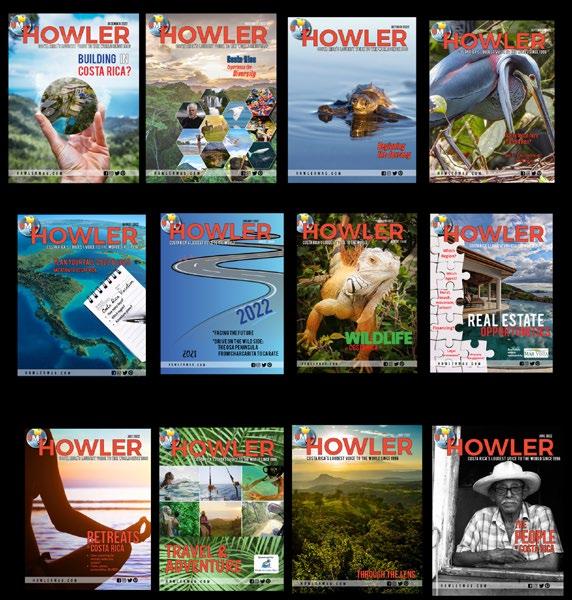
TRAVEL & ADVENTURE
• Tierra del Fuego
• A Bird's-Eye View
• The Resplendant Quetzal
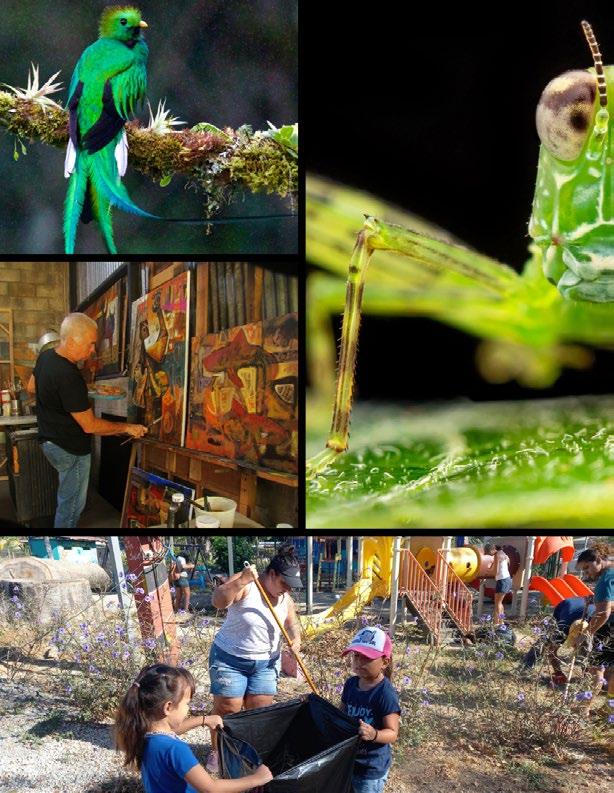
• The Full Diamante
Click on the section to go directly to those pages.
ARTS, CULTURE & ENTERTAINMENT
• Cultural History
• Artist Spotlights:
- Milo Gonzalez
- Nothing is Black and White in Amy Pink's World
UP FRONT:
• Up Close and Personal: Macro
Editorial: Stories Connect us
Q Costa Rica: News Updates
PURA VIDA
• Pura Vida Show begins!
• When People Who Care Come Together
• Living a Biocentric Life
• Peptic Ulcers
• Spanish: Real Estate Terms
CR BUSINESS
• Medical Marijuana and Hemp Legalized
• More Legal Ease Articles
Macro Photography Gems
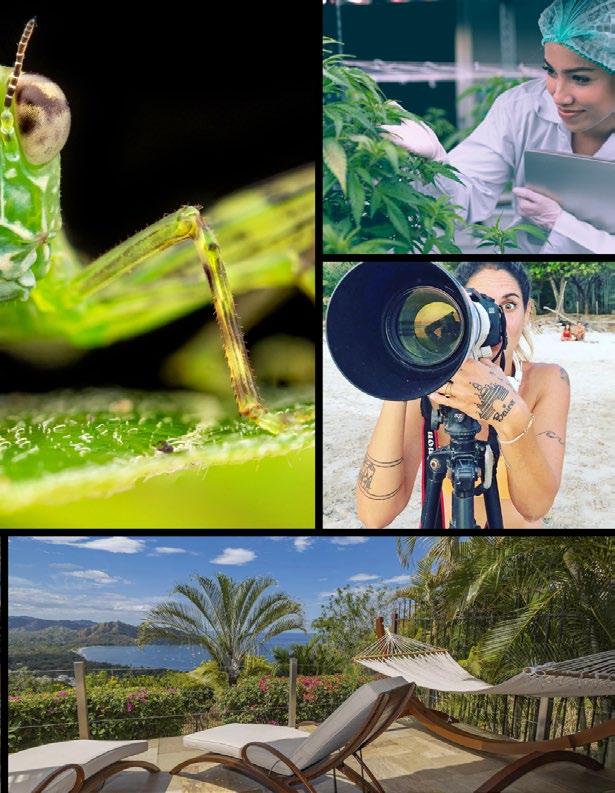
us With Each Other
Updates
REAL ESTATE
• Tres Amigos Real Estate
• Coldwell Banker CR
• Grupo Tropigala
• Sun Real Estate
CR SURF
• Tide Chart, Moon, Sun Schedule
• Mor Photography
• More articles
Welcome to Peter Grob’s world, where no creature is too small to steal the big spotlight. The Switzerland native describes himself as an ambitious amateur photographer with a preference for macro models and a passion for jumping spiders.

Howler readers are invited to cozy up to this special selection of species that Grob caught on camera while traveling in Costa Rica. Most of the photos were taken at night.
Prepare to be awestruck when viewing more of his work at www. petergrob.ch and on Instagram@p_ grob.
Peter's photography takes a lot of effort to capture the macro images.
Some scientists estimate that there could be up to 300,000 different insect species in Costa Rica. So far, only around 35,000 have been recorded. With that many bugs, you are bound to cross paths with several dozen species on any given day.

Howler is not responsible for any screams, itching or fears as a result of entomophobia. If you experience any of these symptons, just skip to the next section. Enjoy!
Travel & Adventure articles are translatable into 12 different languages, top 3:
Taken with Pentax gear
Light diffusion by @ak_diffuser (modified)
Details in „Gear“ highlight
Cahuita NP, Costa Rica
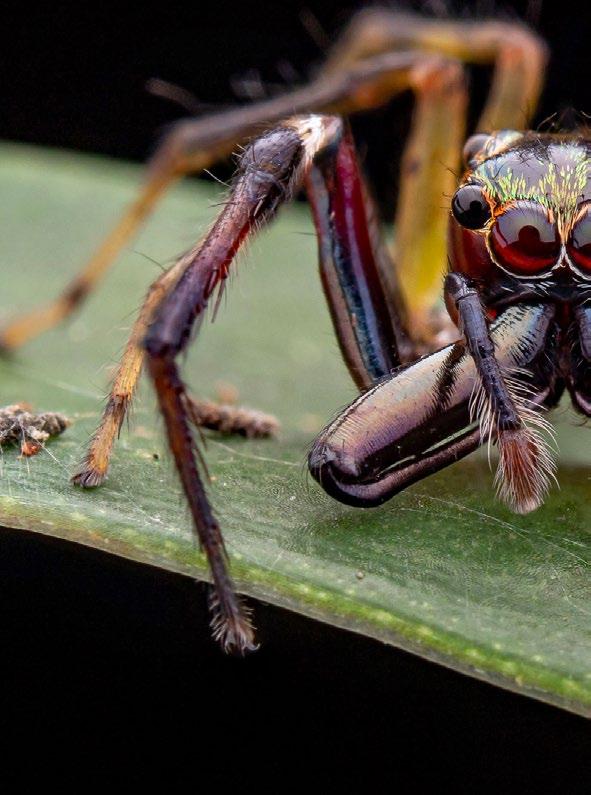
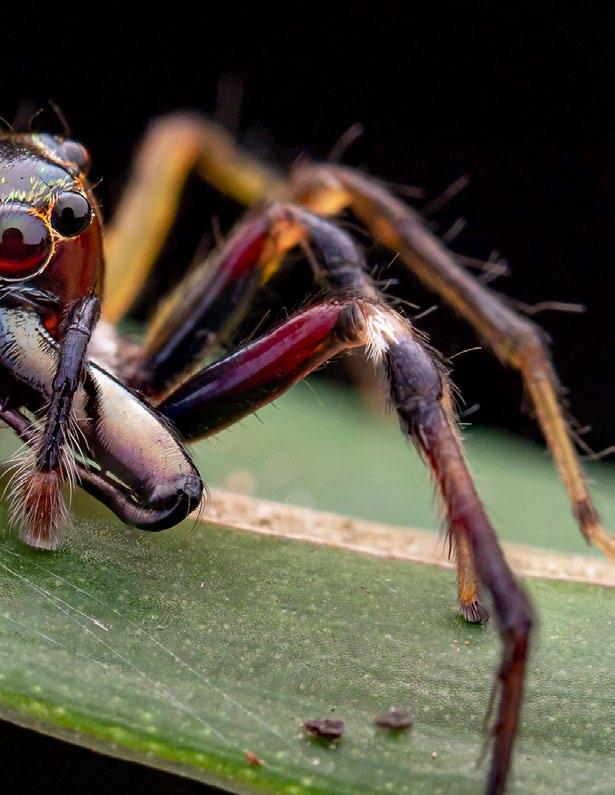
Cupiennius sp. wandering spider showing off
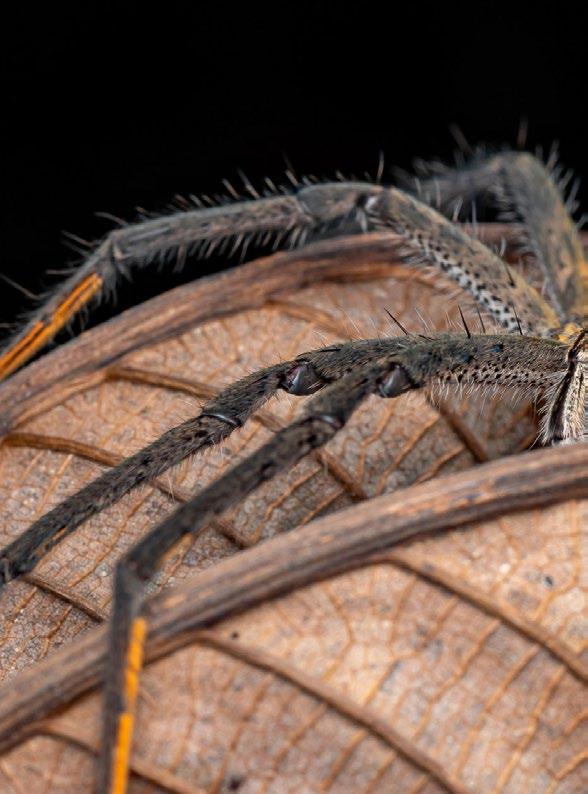
Olympus OM-D E-M1 Mk II
M.Zuiko 60mm Makro
Godox V350o
@ak_diffuser (modified)
Comadre, Limón, Costa Rica
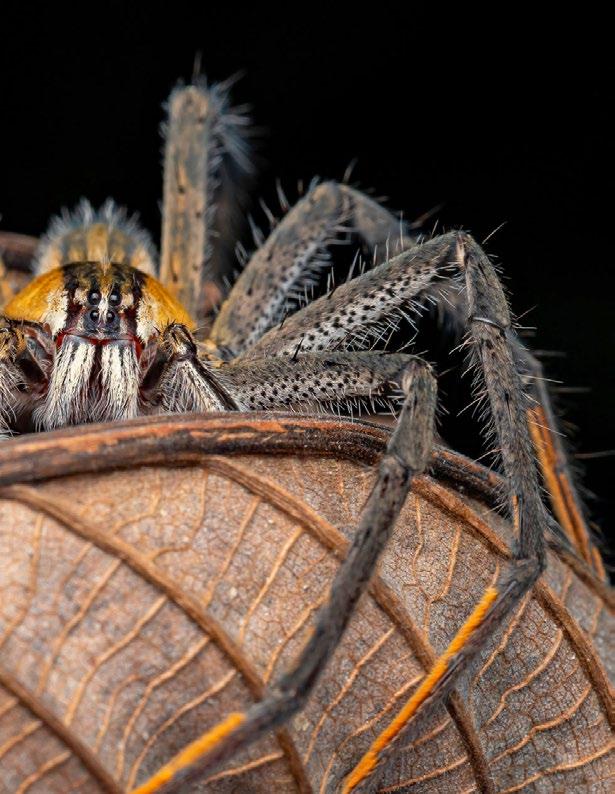 by Howler Staff
Photos courtesy of Girasoles de Costa Rica
by Howler Staff
Photos courtesy of Girasoles de Costa Rica
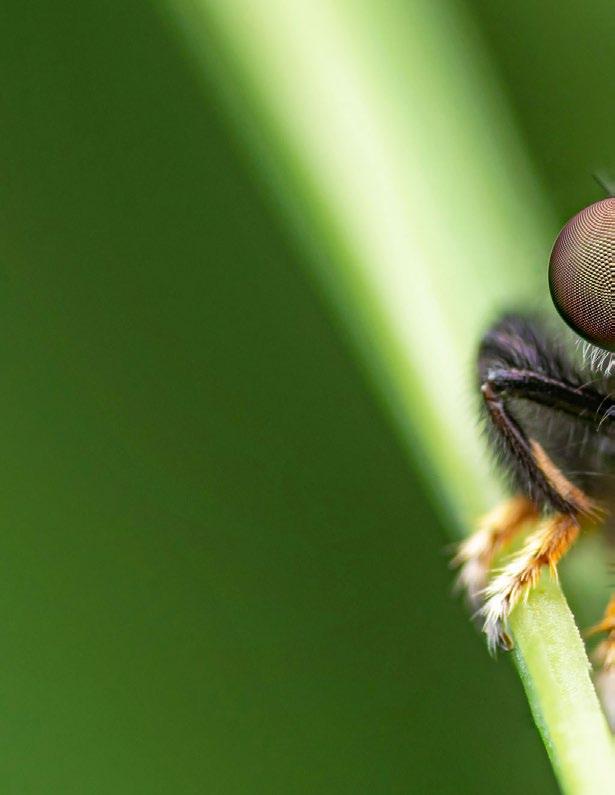
These robber flies are only 3-4 mm in size and one wonders what do they rob? Well, even smaller flying insects are what they are looking out for. Talking about flying. If you play in the dwarfed Champions league, air behaves to you more like water to us. They are more like swimming through the air than flying.
Taken with Pentax gear
Light diffusion by @ak_diffuser
(modified)
Details in „Gear“ highlight Focus stacked image
Monicas garden, Cahuita, Limón, Costa Rica

Female Phiale cf. guttata jumpingspider. Her common name is "Tiger jumping-spider".
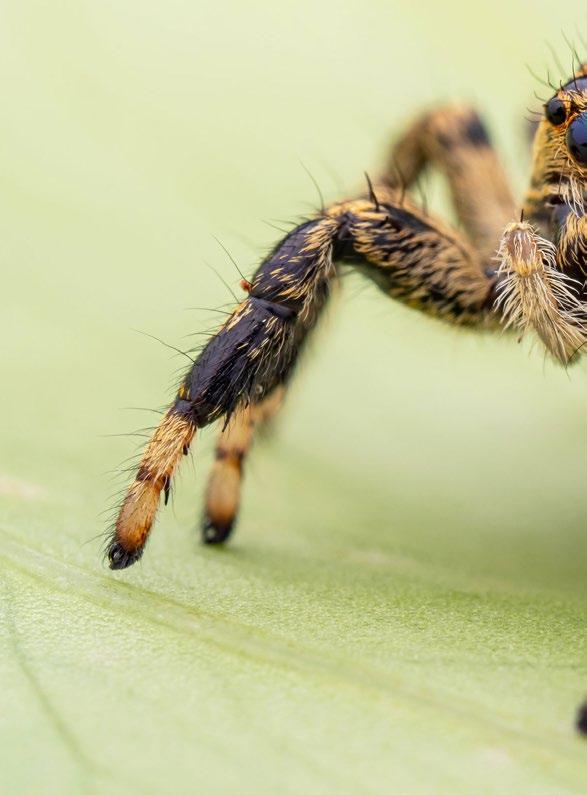
Olympus OM-D E-M1 II
M.Zuiko 60mm macro
Godox V350o
@ak_diffuser (modified)
Tuba Creek, Limón, Costa Rica
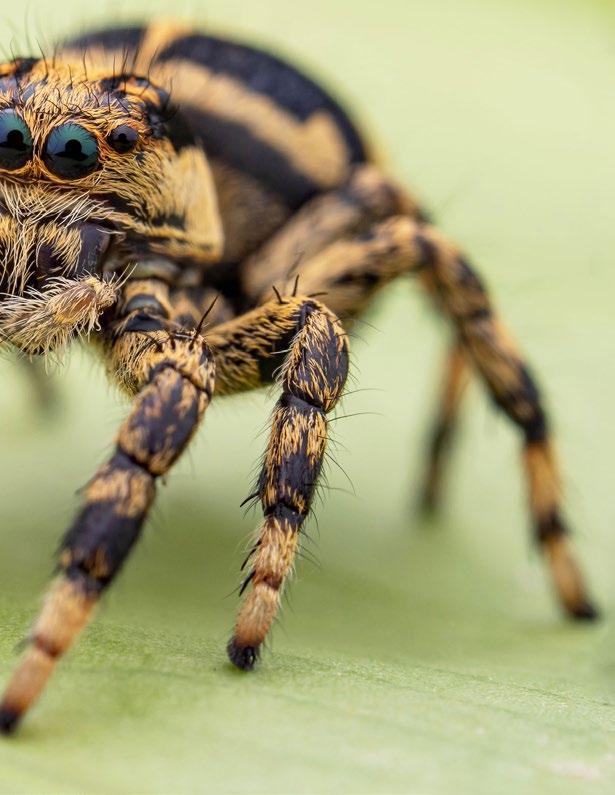
One of my goals for my last trip to Costa Rica was to photograph this amazing species of stalk-eyed flies, and if possible the female and the male. So I went several times to the spot where I saw these critters' courtship and spent all together a full day of stalking and photographing several specimen. The first picture is a composite image of two separate photos.
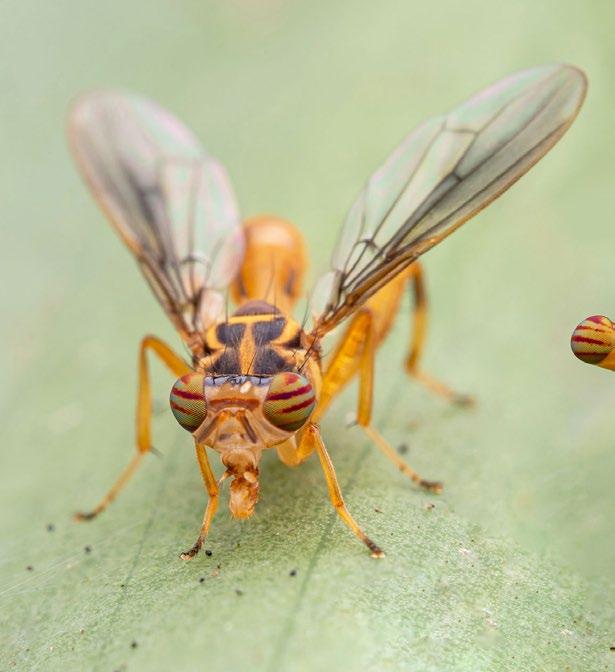
The outcome is one of the all-time highlights of my "career" as a photographer. Especially getting both eyes of the male in focus is a real nightmare and took a lot of patience, swearing, sweating and nerves.
Olympus OM-D E-M1 Mk II M.Zuiko 60mm Macro Godox V350o @ak_diffuser (modified)
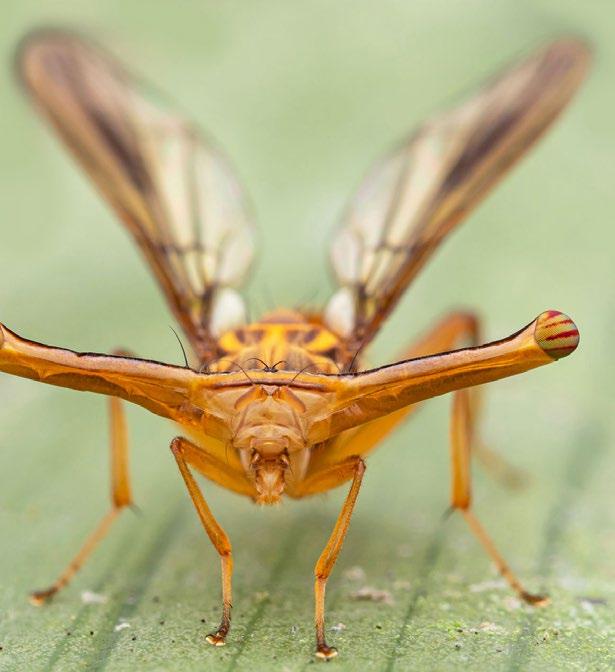
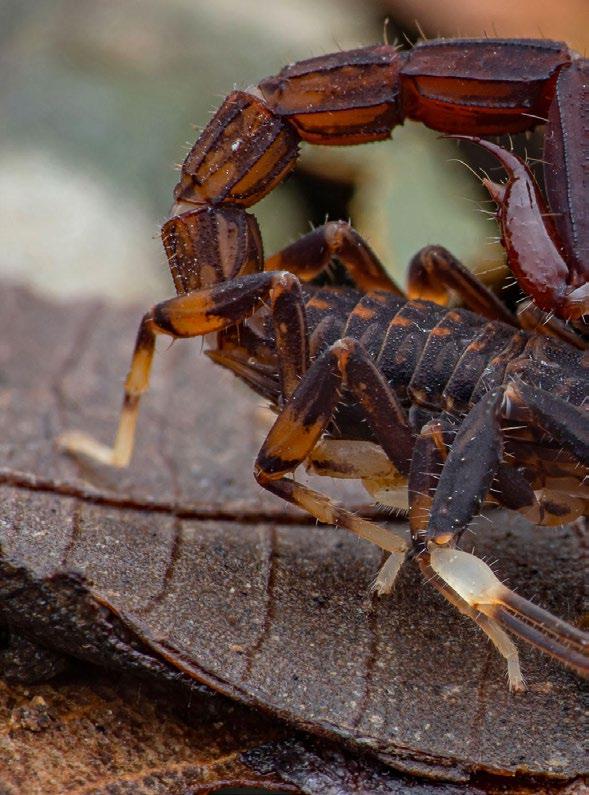
Juvenile scorpion scurrying at night in the leaf litter
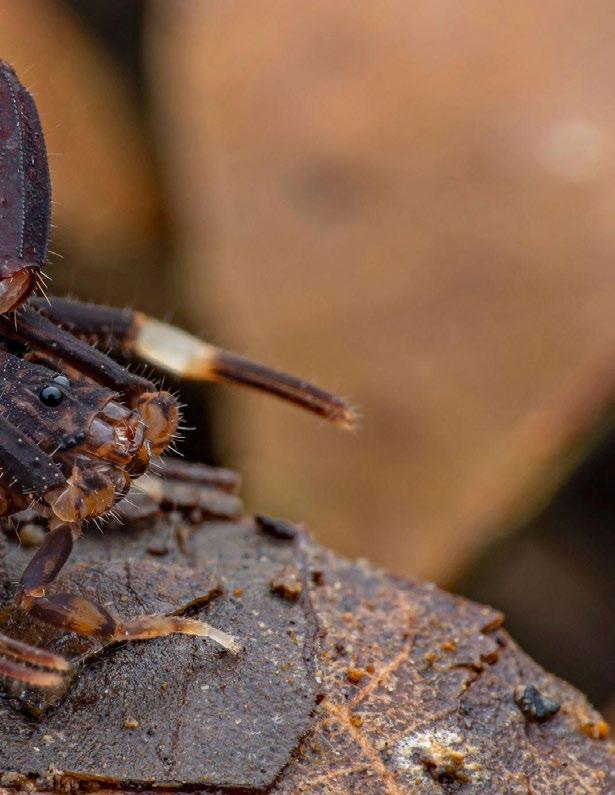
Taken with Pentax gear Light diffusion by @ak_diffuser (modified) Details in „Gear“ highlight Focus stacked image
Cahuita, Limón, Costa Rica
CLICK HERE FOR MORE
Yes, this is a real grasshopper living in Central America and not an AI generated monstrosity. I promise that I will never post any computer generated phantasy meant to look like something real. I have great concern about this new trend and technology that occurs on social media lately. Soon people will not be able to tell the difference between a real photo and an AI generated image anymore.
In my opinion this comes with even more loss of touch with nature for many people and will decrease the appreciation of what miracles evolution has brought to light over billions of years.
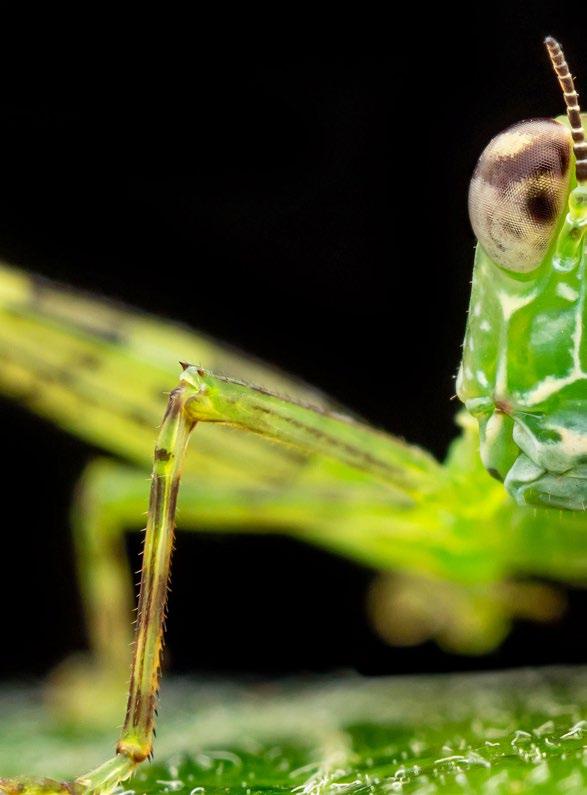
"What do I care if this or that bug gets extinct? Let's create something new with AI."
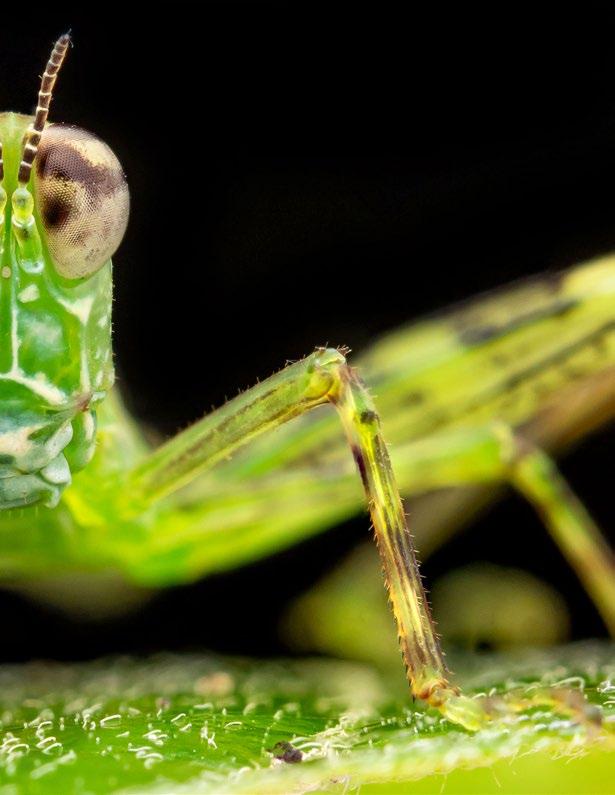
Don't get me wrong. I have absolutely nothing against digital art as long as it is properly stated as such. But believe me, soon first AI generated images will be presented as real and we won't be able to tell the difference.
Olympus OM-D E-M1 Mk II
M.Zuiko 60mm macro
Godox V350o
AK Diffuser (modified)
Focus stacked image
Tuba Creek, Limón, Costa Rica
CLICK HERE FOR MORE
Chewbacca
Phoneutria depilata, the Costa Rican cousin of the Brazilian wandering spider, is a member of one of the most venomous spider families there is.
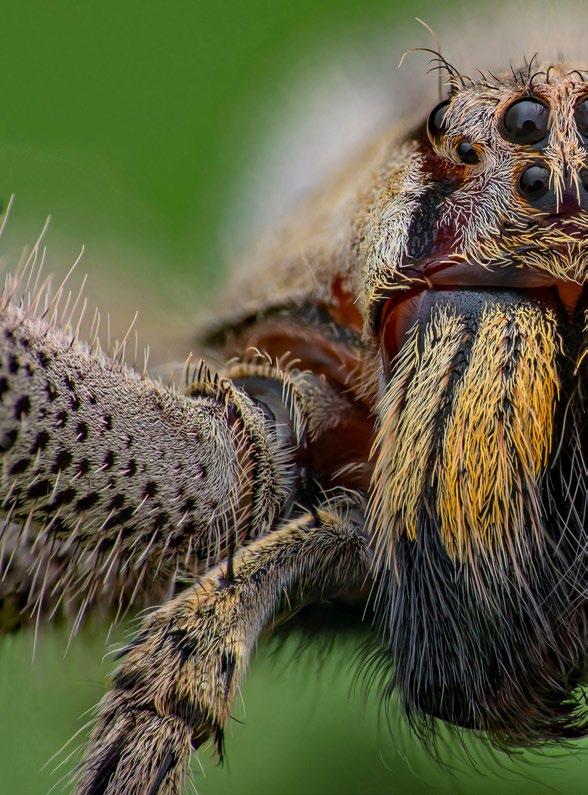
Olympus OM-D E-M1 Mk II
M.Zuiko 60mm Macro
Godox V350o
@ak_diffuser (modified)
Comadre, Limón, Costa Rica
CLICK HERE FOR MORE
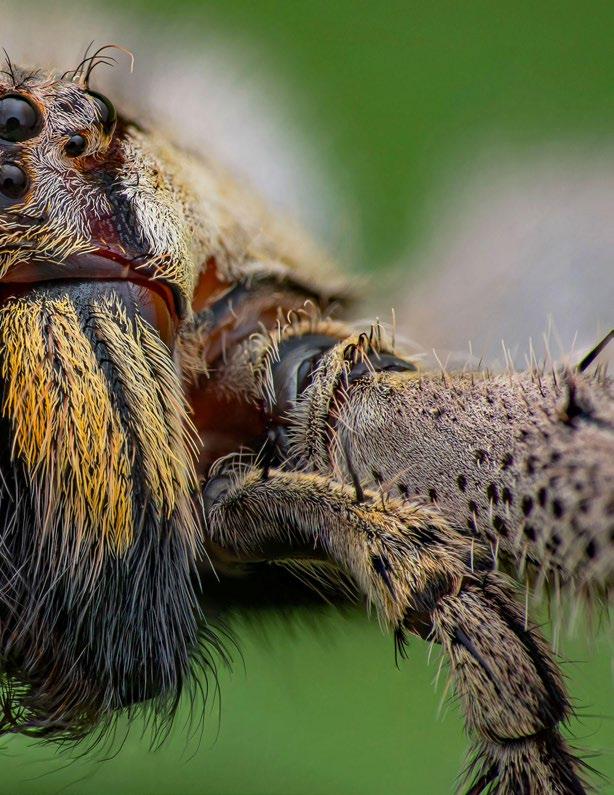
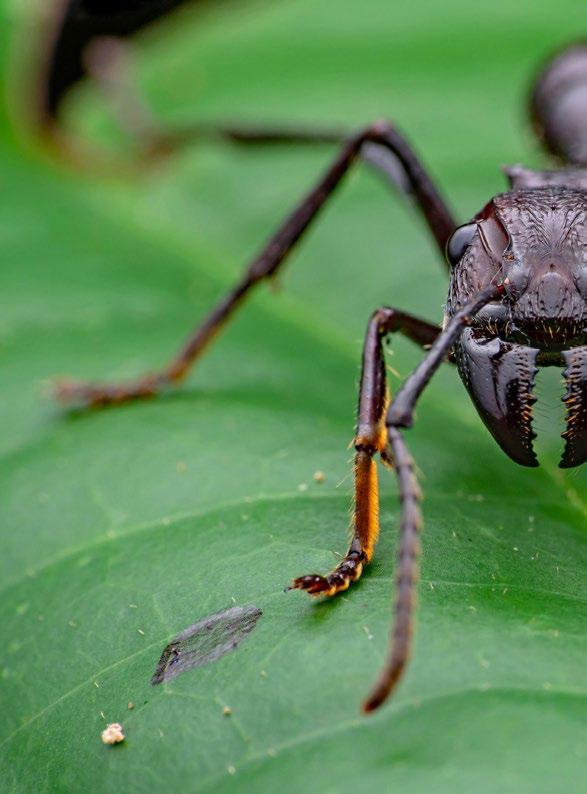
Despite the very impressive mandibles, the extremely painful sting is delivered from the other end. The common name "bullet ant" relates to the sudden impact of the sting and injection of the venom poneratoxin, which shall feel like one was hit by a bullet.
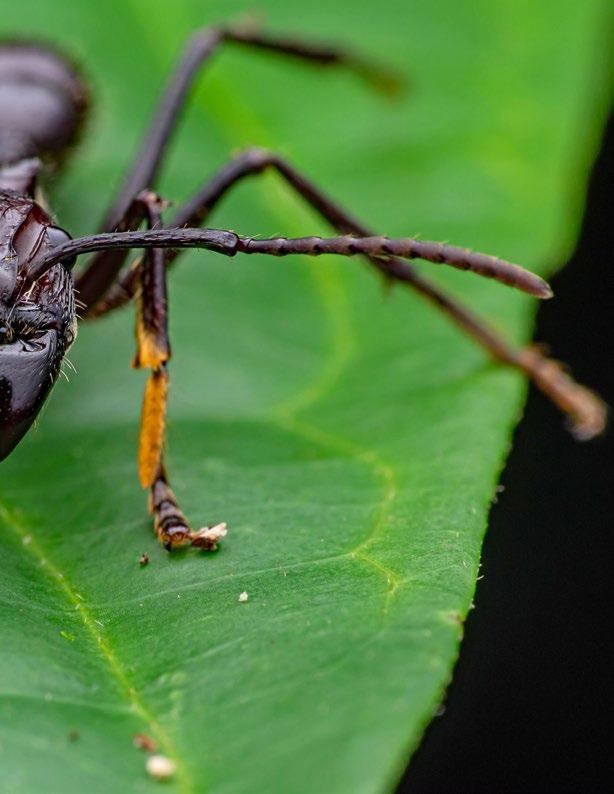
I don't know who actually was hit by a bullet and stung by a bullet ant to be able to compare both incidents, but I believe both are very painful.
Another trivia name is "24 hour ant" because that is the time span for the pain to wear off.
Taken in situ with a lot of cold sweat on my forehead with my robust and reliable Pentax gear
Light diffusion by @ak_diffuser (modified)
Details in "Gear“ highlight
Manzanillo, Limón, Costa Rica
CLICK HERE FOR MORE
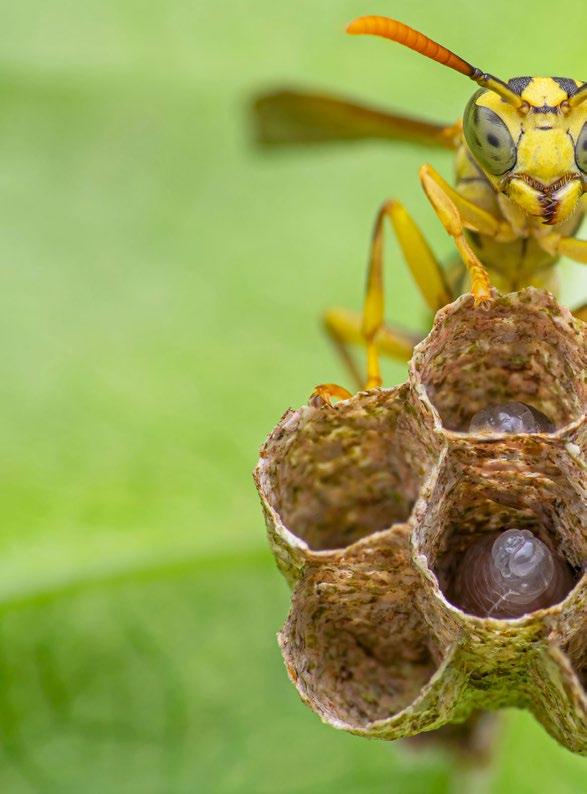
Paper wasp
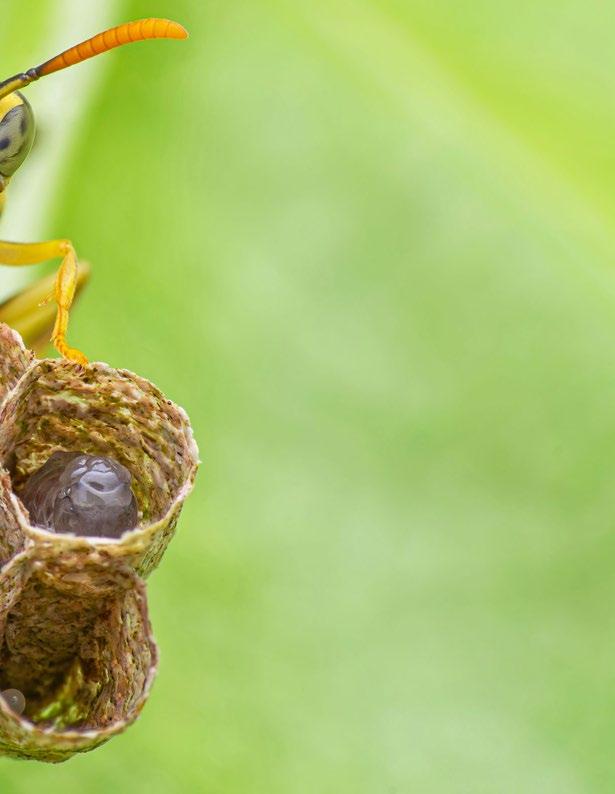
Taken with Pentax gear Light diffusion by @ak_diffuser (modified)
Details in „Gear“ highlight Cahuita NP, Costa Rica
Arguably the member of the genus Beata belong to the cutest jumping-spiders ever.
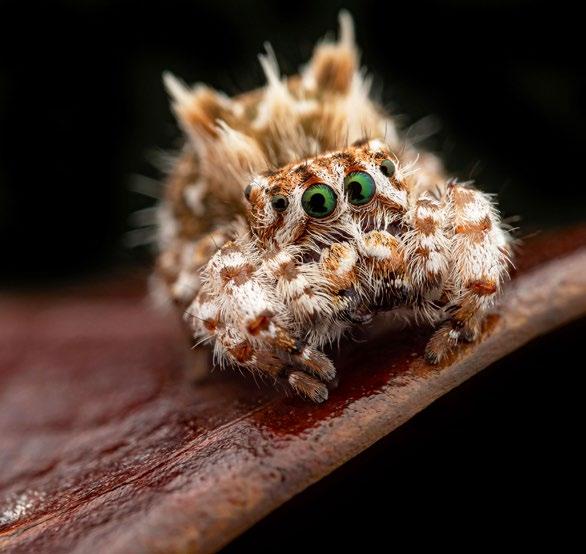
Olympus OM-D E-M1 Mk II
M.Zuiko 60mm Macro
Godox V350o
AK Diffuser (modified)
Focus stacked image
Cahuita NP, Limón, Costa Rica

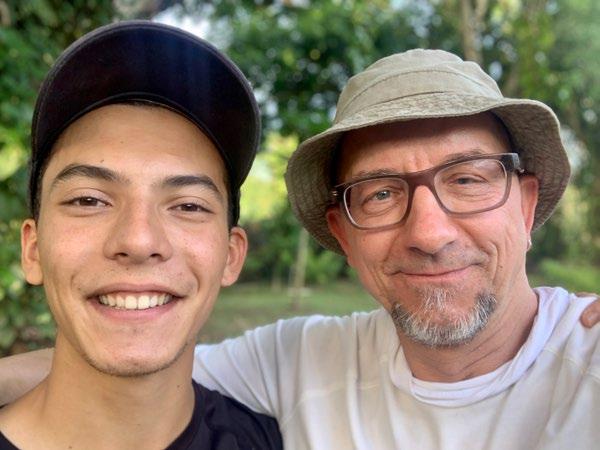 Peter with friend and naturalist guide Mathieu Griffon Contact Matthieu on INSTAGRAM. He offers tours in and around Cahuita and was my guardian angel on most my night tours.
Peter with friend and naturalist guide Mathieu Griffon Contact Matthieu on INSTAGRAM. He offers tours in and around Cahuita and was my guardian angel on most my night tours.
Why is it Important to Work with a Licensed Real Estate Agent and a Long Standing Real Estate Company?



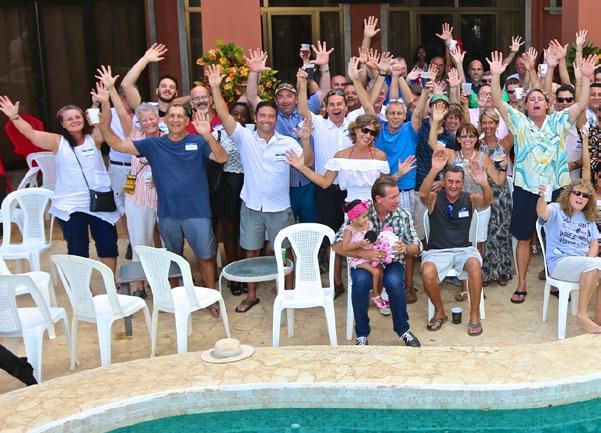
How Do People Enjoy Life Here?
Buying Real Estate? The Basics
What our Reasons Why Love Living Here?
OR

What are our 99 Reasons Why We Living Here?

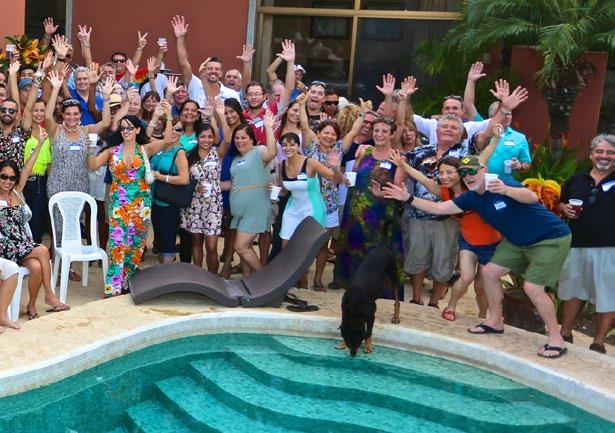
Can



Buy or Build?

One million more tourists arrived in 2022 compared to 2021. The United States is the main source market for travelers visiting Costa Rica.
QCOSTARICA – Costa Rica closed the year 2022 with the arrival of 2,349,537 tourists (by air land and sea), that is, more than one million passengers than in 2021.
This means that the country recovered 3 out of 4 tourists (75%) of the pre-pandemic year, of which 90% (2,117,960) arrived by air.

The United States is the main source market for travelers visiting Costa Rica. According to figures published by the Instituto Costarricense de Turismo (ICT) – Costa Rican Tourism Board – the 2.3 million tourists is consistent with the scenarios published in the monthly reports throughout last year and is higher than the growth scenario for 2022 included in the National Tourism Plan 2022- 2027, which had forecast 2,023,781 tourists for 2022.
“These numbers are the extraordinary result of the joint effort of public sector actors and private sector actors. These are encouraging data that give us the impetus to get as close as possible this 2023 to equaling the tourism indicators that the country had before the pandemic. We have our sights set on the growth of visitation, but also of foreign exchange, of the quality of life in our tourist communities, of the quality of service, and we do it in communion with the sustainability for which we are recognized worldwide,” said William Rodríguez, Minister of Tourism.
The United States is Costa Rica’s main tourist market, with 1,252,469 tourists entering by air, close to 98% of the number that visited us in 2019. All the North American airlines that operated in Costa Rica before the pandemic returned, and added more flights to their pre-pandemic schedules.
QCOSTARICA – Two hours for a domestic flight and three hours before for an international flight, is the recommendation. In Costa Rica, so rigid are these guidelines, neither the airline nor airport authorities allow boarding if the passenger arrives less than 60 minutes before scheduled takeoff.
So, why do you need to arrive early for international flights?
One of the reasons is because of the extra steps required before reaching the boarding area, such as having to go through immigration and visa/ passport control and security screenings before being allowed to enter the departures area of the terminal.
You have also to take into consideration peak times. At the San Jose international airport, the early morning hours is the time of day when most travelers are taking the plane.

Airports also want you to take advantage of their incredibly expensive shopping and dining facilities, which you can’t do if you’re rushing to the gate.
Estimating the perfect time to leave for the airport can be quite challenging. It’s hard to tell how long the check-in line will be or how long it will take you to go through airport security.
Check-in time and departure time are different. The departure time is the time when a plane leaves the gate, while the check-in time is the time when the airline’s doors open to greet passengers and check their baggage.
Can you arrive later at the airport if your flight is delayed?
Delays and cancellations statuses aren’t always precise and are likely to evolve without being updated online in real-time. Also, some airlines will require you to check in at the initially required time despite the delay.
No one wants the airport experience to be longer than the flight, but you should not arrive too late either.

QCOSTARICA – The only way to alleviate the rise in inflation and the high level of unemployment is by increasing economic growth, assured Ennio Rodríguez, president of the Colegio de Ciencias Económicas (College of Economic Sciences).
The level of employment reported a downward variation of 11.6%, a figure lower than before the pandemic when it was 12.2%, according to data provided by the Instituto Nacional de Estadística y Censos (INEC) –National Institute of Statistics and Censuses.
By the end of 2023, the rate is expected to drop to 11.1%. Although specialists point out that there is a not insignificant improvement, the figure is still very high.
The cost of the main foods of Costa Ricans in 2023 is expected to rise in the range of 8% to 15%.
This inflationary process is reflected in the loss of purchasing power of households and its consequences in poverty and other indicators such as security.
The price of the canasta basica (basic basket) is experiencing a situation similar to that of unemployment, since inflation will be less than the 20% in 2022, but it is still higher than what was experienced between 2019 and 2021 (4% to 8%).
QCOSTARICA – This year, seven entrepreneurs participate in the Young Leaders of the Americas Initiative (YLAI), of the United States Department of State program that combines virtual training with professional internships in the United States.
The YLAI invites Costa Rican businessmen to apply to be part of the professional training program.
The application process for the next Young Leaders of the Americas (YLAI) Fellowship Program is now open and the deadline is February 15, 2023.
Those who are chosen will receive a notification in June of this year. The program begins with virtual training in November and professional internships in companies in the United States will take place in March 2024.
Who is eligible to apply? Candidates will be considered without respect to race, color, religion, sex, gender, sexuality, national origin, disability or any other protected characteristic as established by U.S. law. Applicants with disabilities are eligible and encouraged to apply for the YLAI Fellowship Program. Click here to apply
YLAI was created in 2015 to promote the entrepreneurship of young people between the ages of 25 and 35, who speak English and have established their businesses for at least two years.
Registration closes on February 15. Those who are chosen will receive a notification in June of this year. The program begins with virtual training in November and professional internships in companies in the United States will take place in March 2024.
Seven Costa Ricans were selected to participate in YLAI this year. They are:
• Ana Cristina Trejos (leader of Magma Social Communication)
• Fanny Vargas (theatrical producer at La Tropa)
• María José Mena (beekeeper in charge of Pollen Keepers, a company that produces high-quality honey and other products from the hive)
• Emmanuel Barrantes (leader of Uturn, a company that restores old 4×4 cars)
• Paola Alvarado (Yikes professional physical educator)
• Rosa Alvarado (leader of Agropura, a company in the agricultural and organic food industry)
• Sofía Alpízar (functional furniture designer in Diseñístico, with services that include interior design consultancy and women’s empowerment workshops with heavy power tools).
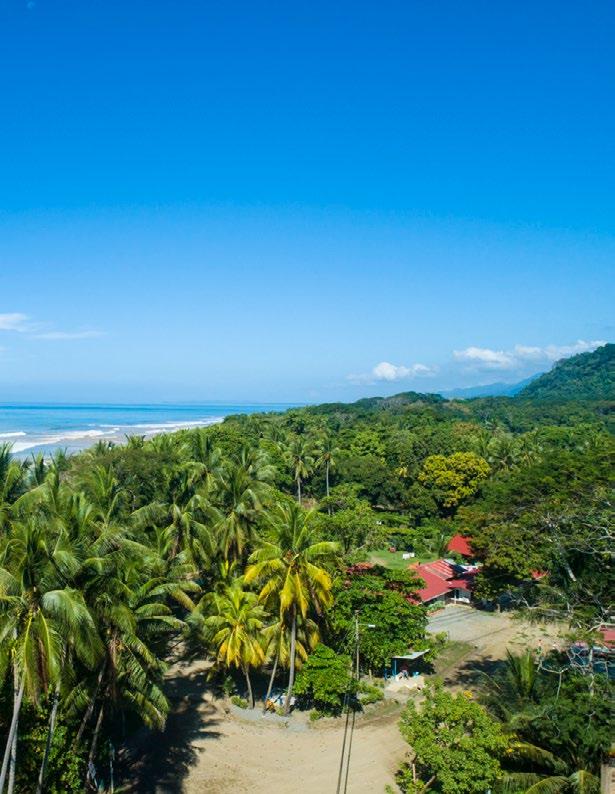
Sell your property in Costa Rica with confidence. Coldwell Banker, with over 100 years of experience and a globally recognized brand, is the trusted choice for home sellers. Our team of highly trained real estate associates have in-depth knowledge of buying and selling real estate in Costa Rica and will work with you to get your property the visibility it deserves. With over 8 million annual page views on our local network of websites, you can rest assured that your property will be seen by the right buyers.
Receive maximum property exposure with over 8 Million annual page views on our local network websites.


Ready to sell your home?
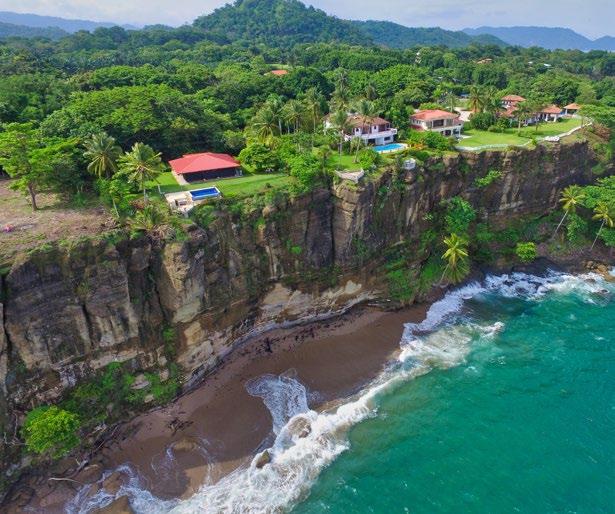
Scan this code to schedule a free property consultation, or find us online at: ColdwellBankerCostaRica.com



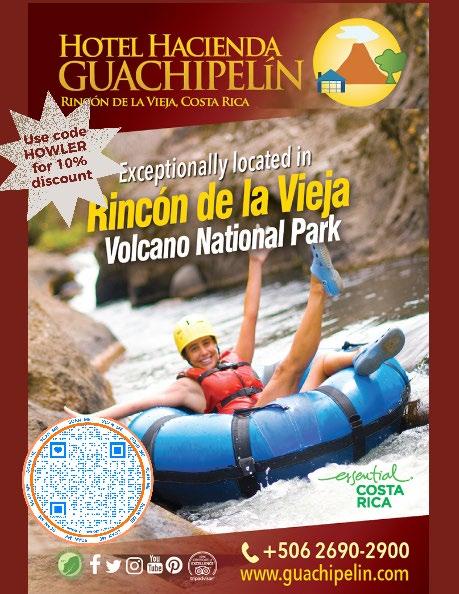

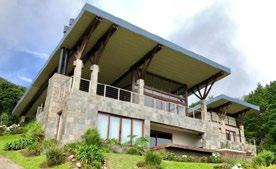


experience the high level of customer service we provide. Click logo:
Grupo Tropigala seeking investors/buyers of Five Beaches on 900 acres on a tropical island paradise in Costa Rica. Almost 7 kilometers of beach, power, water. Suitable for all inclusive, mid or high range development. Hour by ferry or utilize the large airfield on property. Hire our team to plan, develop and build your eco-concept.
Lana Taal
29 years in Real Estate. Extensive experience in business related to the area of commercial, tourism and agricultural projects in Costa Rica, Panama and Colombia.

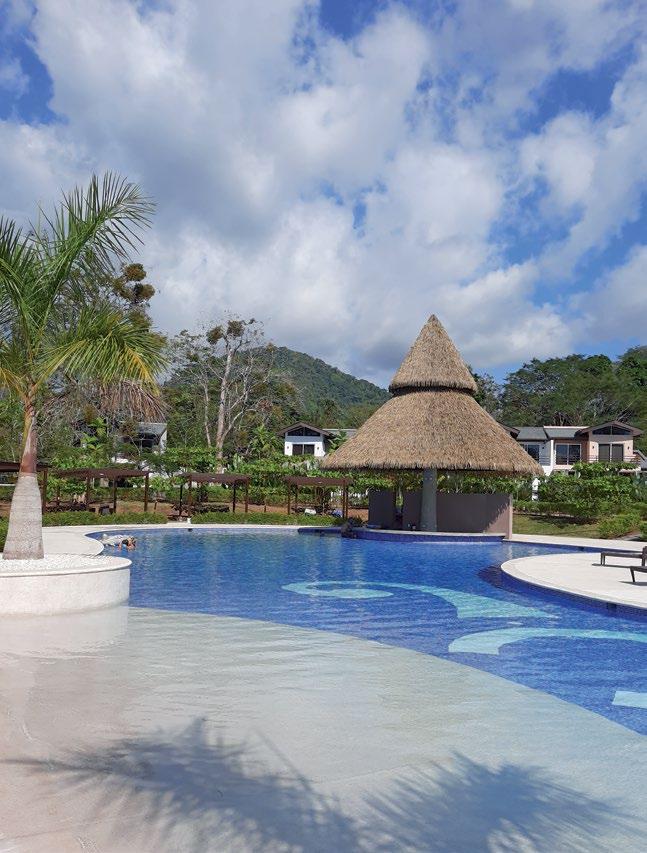

What is the highest peak in Costa Rica?
What is the name of the only Costa Rican born astronaut?
How many years has Howler been published?
What is Costa Rica's #1 export?
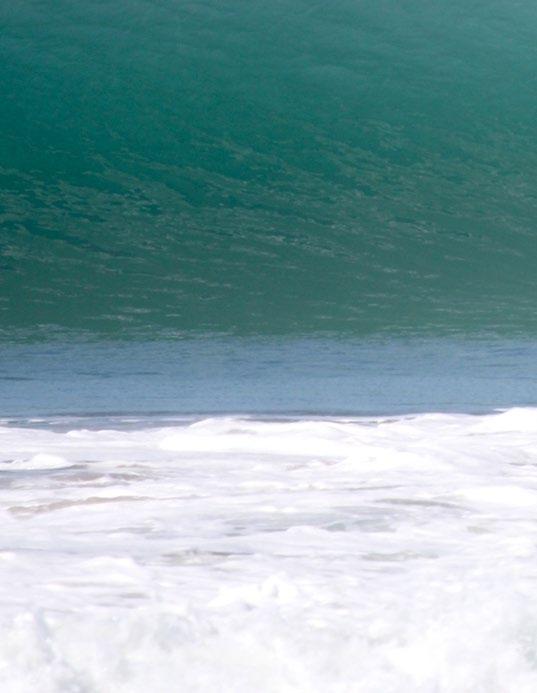
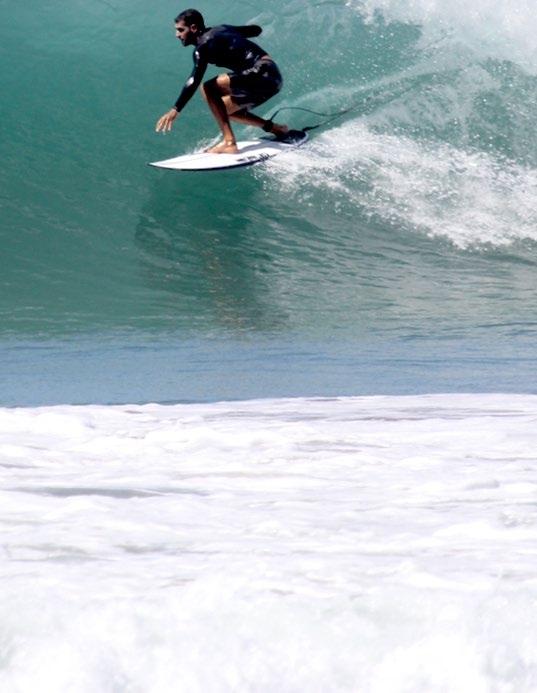

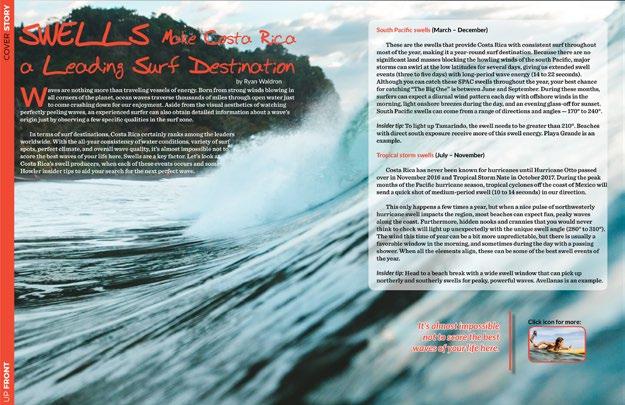
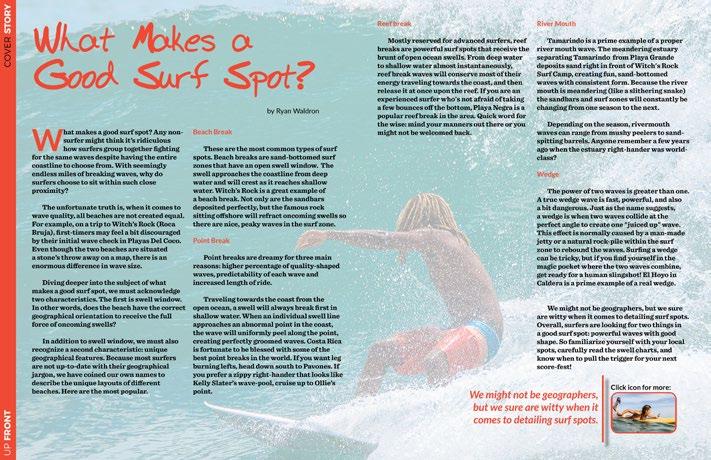
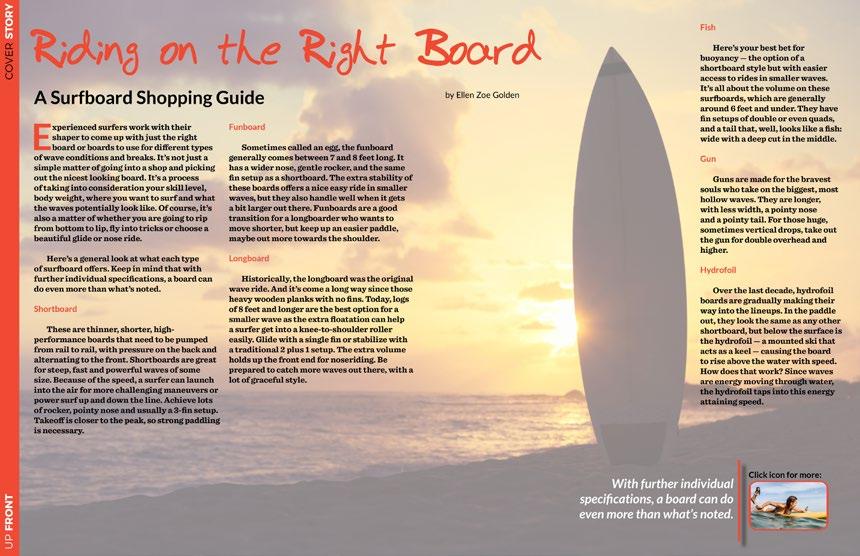
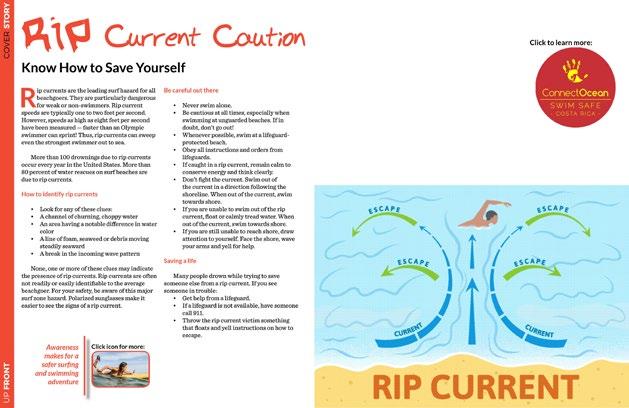
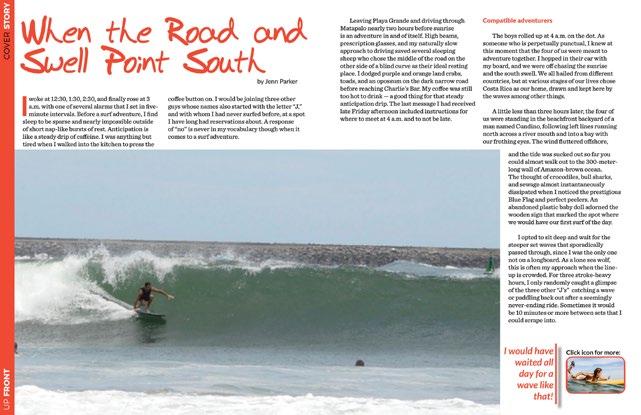

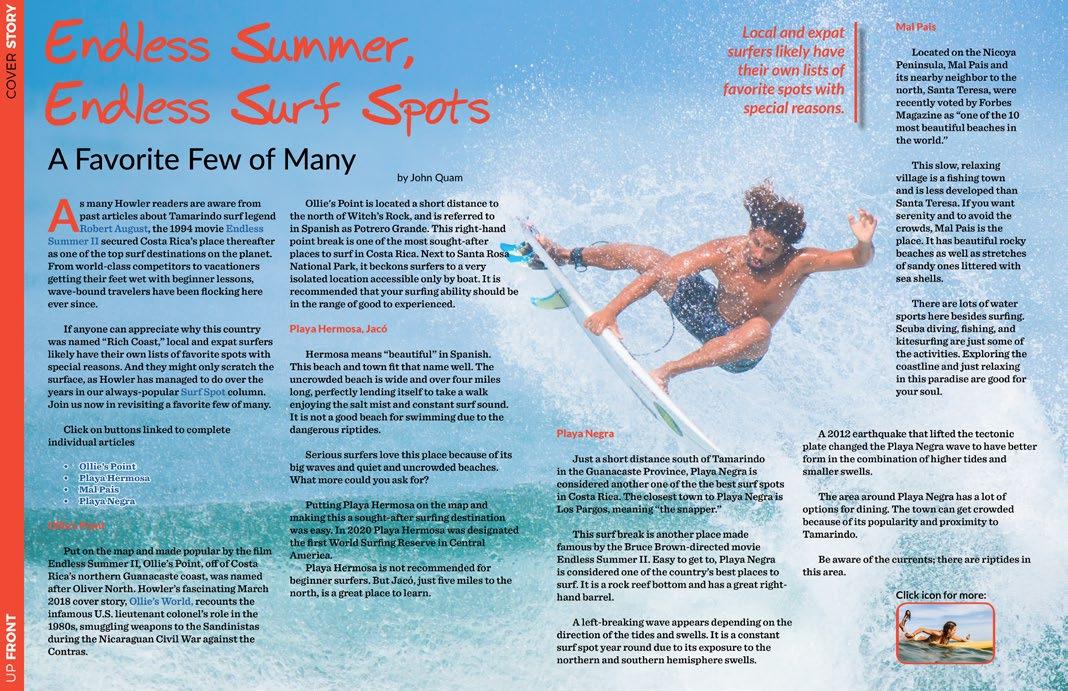



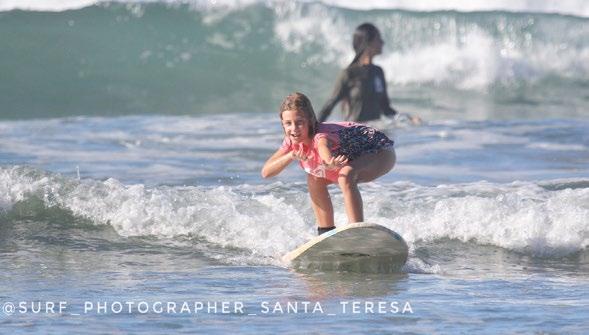
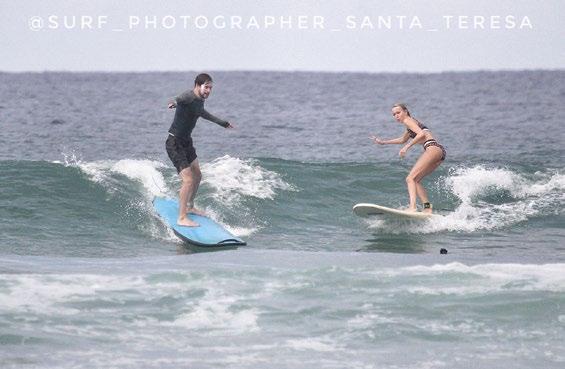


Click


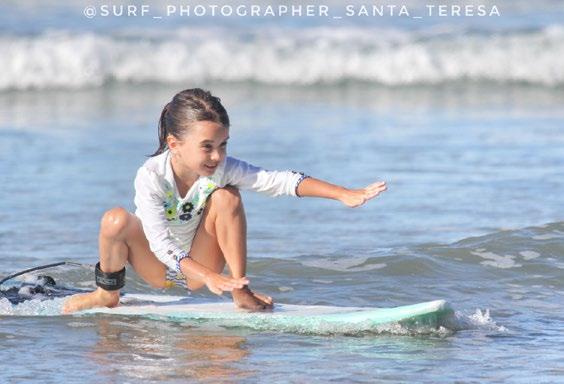
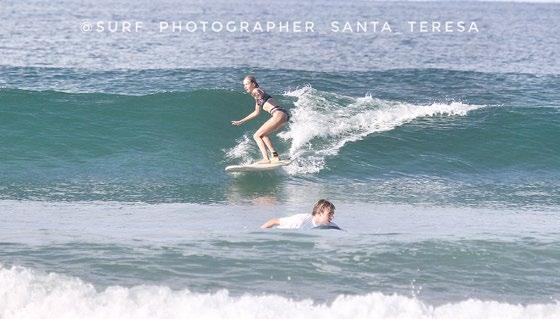

Pizza and pasta made in the au-thentic Creole Italian style International menu with dishes made with chicken, fish, beef and shellfish, without missing the traditional pinto, All accompanied by the best German bread.







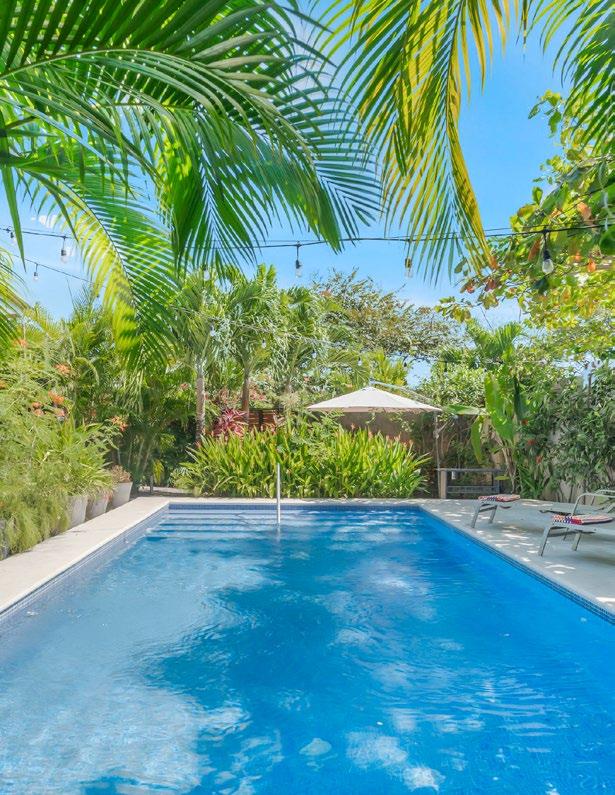


Welcome to Stellar Villas, an ROI rental oasis located only a 2-minute walk from the Pacific Ocean and the beautiful beach of Langosta. This property consists of 3 rental villas with 7 bedrooms, 7.5 bathrooms, and 350m2 of airconditioned space. The main home boasts 2 master bedrooms, a spacious kitchen/living room area, high ceilings, natural light, and high-quality finishes. The two guest homes are spacious, with plenty of privacy, fully equipped and ready for the new owner to start producing income immediately. The entire property has a secure perimeter and amenities within walking distance. Contact us today to schedule a viewing.

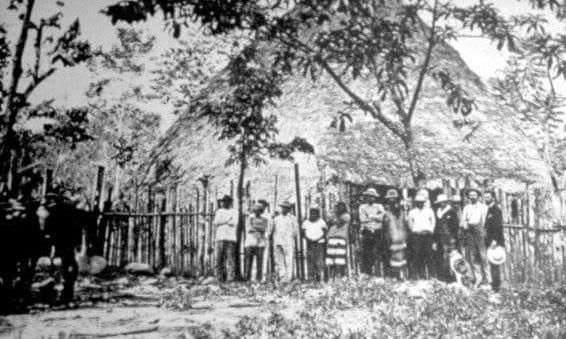
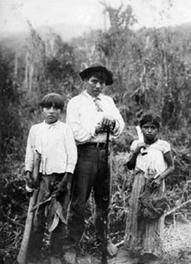







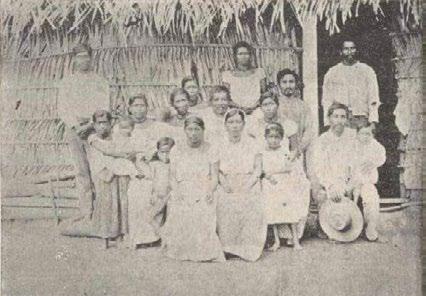 Photo from an area of the Talamanca mountain range, which crosses Costa Rica and Panama. 1892
Indigenous family in Tuis de Turrialba, Cartago 1907
Indigenous people of Matambu, Nicoya 1904.
Banco Nacional's last printed banknote bearing an indigenous Tico image, said to be a painting based on the last Talamanca king, Antonio Saldana 1939
Stockholm Museum display of Costa Rican archaeological pieces looted by researcher Carl Hartman 1900.
Photo from an area of the Talamanca mountain range, which crosses Costa Rica and Panama. 1892
Indigenous family in Tuis de Turrialba, Cartago 1907
Indigenous people of Matambu, Nicoya 1904.
Banco Nacional's last printed banknote bearing an indigenous Tico image, said to be a painting based on the last Talamanca king, Antonio Saldana 1939
Stockholm Museum display of Costa Rican archaeological pieces looted by researcher Carl Hartman 1900.
Howler’s "Making a Scene" series continues this month, with Milo Gonzalez giving us a personal glimpse at the inspiration behind four of his selected paintings.
As a child, the Costa Rican artist always showed skill in his drawings and illustrations, but chose other courses of study in secondary school. Still, with a yearning for art, he spent a brief time at Bellas Artes before deciding to develop his own path, including tutorage from Master Kan Yu Chen from La Casa del Artista. The focus of Milo's work finds him exploring new techniques and compositions, with the subject often being secondary in his quest for aesthetic values.

Oil on canvas, 49" x 39"
This painting was inspired by childhood memories of the days when trips to distant beaches were only possible by paying a boatman to cross the rivers. The composition splits the light to create a kaleidoscope effect, with the sunset’s predominantly red light contrasting strongly with the green of the clouds and blue of the mangrove. Emphasis is on the solitude of the people on the boat.
Oil on canvas, 36" x 32"
This painting seeks to show the power of an image through the use of two strongly contrasting colors — cutting out the motif of the bull figure in red against the yellow background. I think I have achieved it, without leaving aside the chromatic tonal graduations that are always my goal in each work. Complete the Online Puzzle

The color and its vibration, as well as the graphics, speak of the energy that only children are capable of capturing.
The bull motif has always been widely used because, in addition to the beauty of the animal, it is a universal symbol of power and
strength. In this work specifically, I attempt to achieve the contrast between the abstract background and the figure of the animal. I also seek to create a visual delight that is tied and complemented in a harmonious whole, where the viewer can always discover new things.

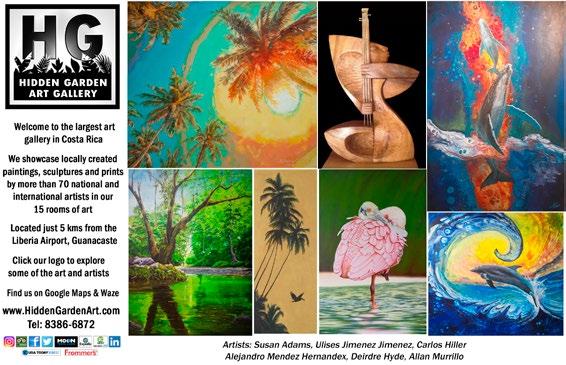
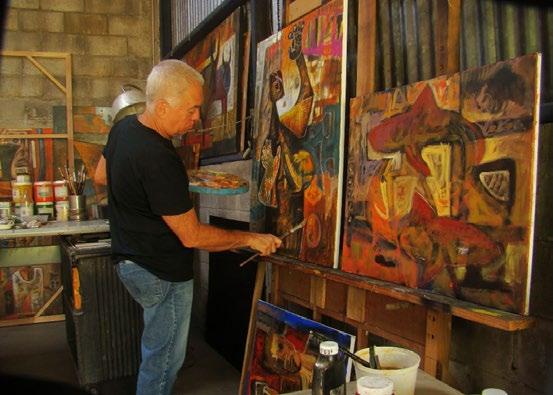
Oil on canvas, 40" x 30"
The playroom theme of this painting depicts two children at play in their room. With
their gaze they magically exalt and transform everyday objects, seeing them as new wonders before their eyes. The color and its vibration, as well as the graphics, speak of the energy that only children are capable of capturing.


Colorful language takes on a totally different, literal meaning when artist Amy Pink talks about the passions and perspectives guiding her life story towards an ongoing Costa Rica chapter.
“I see eye candy everywhere I look,” she says when describing the sense of aliveness that overtakes her imagination in outdoor settings. “In my mind’s eye I see every landscape as a potential pastel … how I would lay out the drawing, how many different shades of the colors I might use.”
Amy’s extraordinarily nuanced regard for color manifested at a very young age. Whether crayoning stylish stick figures or painting in oils, Amy would lose all track of time during her creative immersions.
“As a child, I was even a creator in the garden,” the Long Island, New York native recalls. “I would not tolerate a red flower next to a purple flower, so I would reposition them even if they were from bulbs — and you absolutely do not move bulbs around while in bloom. But even back then, colors not in harmony were too painful for me to live with.”
Amy’s love of impressionist art later influenced her foray into pastel depictions of landscapes en plein air — translated from French as “in the open air.”
“I think when I work en plein I am also painting the light,” she says, ”My style is unique, my strokes are quite individual, and for this I am grateful to be self-taught.”
Amy’s early adoption of pastels as her favorite medium was not for lack of formal instruction in a wide range of other media, culminating with a BFA degree from the School of Visual Art in New York City.
“I studied textile design, printmaking, photography, graphic design — you name it. I took every type of art class available. However, I am completely self-taught in the medium I chose to work in. I love pastels for their richness of color and the freedom and possibilities they afford. I once went on a yoga and painting retreat at Giverny — Monet’s home in France — and was given acrylic paints. I did not like them at all, and was very grateful I brought my pastels!”




“As a child, I was even a creator in the garden. I would not tolerate a red flower next to a purple flower.”
Claudio
Billy
Dolphins Hector & Henry
Concurrent with Amy’s artistic journey over the years were her world travels. Trips to Costa Rica, the Galápagos Islands, Africa, Chile and Bolivia ultimately set the stage for a thematic shift inspired by a different kind of muse altogether. While exploring these international locales, it had become clear to Amy that animals were attracted to her in all kinds of ways she found crazy and delightful. The brainchild of that realization is the series of pastels she named Animal Joy, now the primary focus of her work.
In striving to capture the light, spirit and energy of her animal subjects, Amy has been struck by the change in tone, mood and intensity of her art.
“My landscapes are very soft and tranquil, and the Animal Joy series is bold and vibrant,” she says. “The animals all look deeply at you daring you to imagine what they are thinking.”

Costa Rica is among the international locales where Amy Pink has found inspiration for her Animal Joy series. She allocates a percentage of print sale proceeds to animal rescue centers here, and in Namibia, the Galápagos Islands and the U.S.

Quetzal Cuties

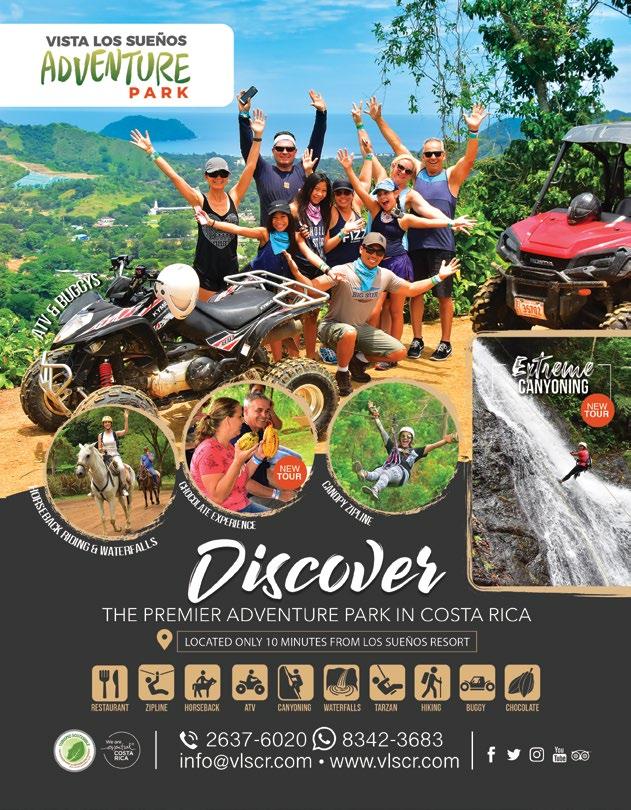




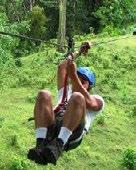

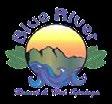








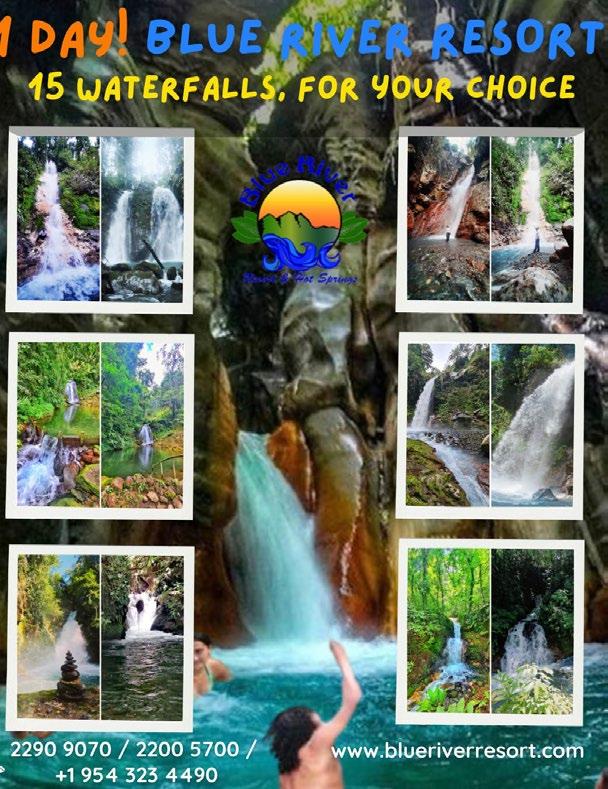
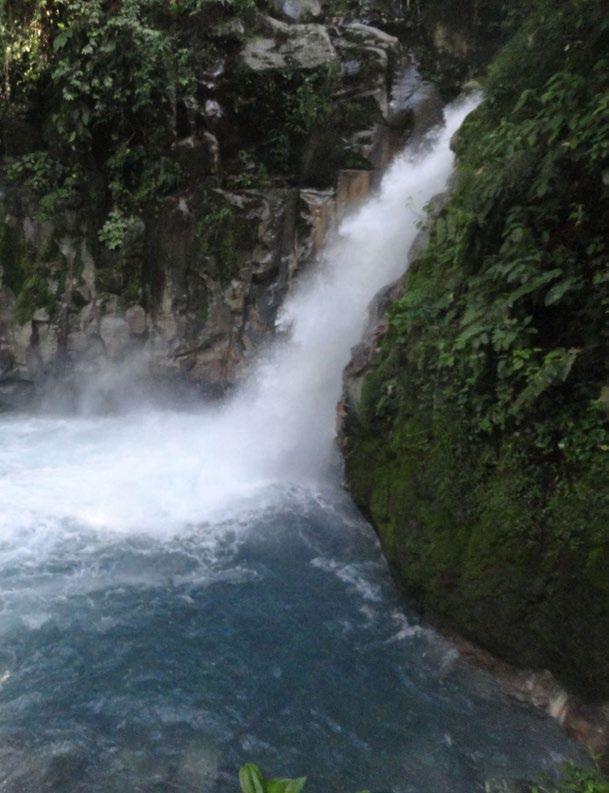

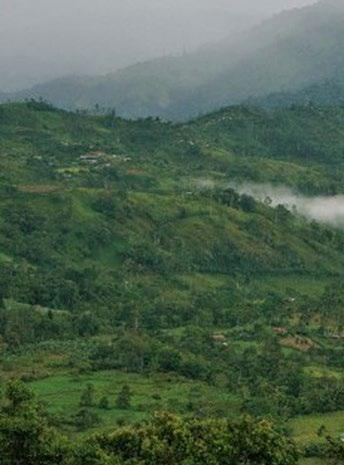
Each month we'll highlight one of Fred's amazing bird photographs. Click lower right for more information.

The resplendent quetzal is an endangered species. Only a few specimens are left in Mexico and Central America. However, there is a relatively large population here in Costa Rica due to the country’s forest protection efforts.
The prime time for resplendent quetzal watching in Costa Rica is from mid-February to July, their mating season. During this time, the avocado trees bear the resplendent quetzal's favorite fruit. And don’t forget to pack your winter clothes. Even though it is still the tropics, high elevation and moisture can bring temperatures down to the low 40s Fahrenheit.
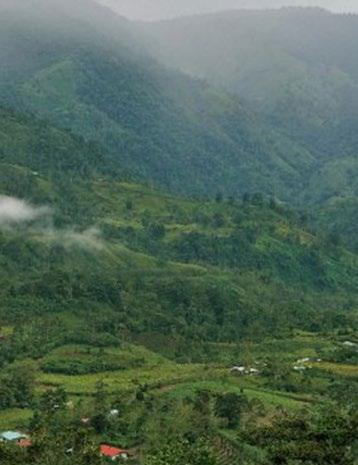
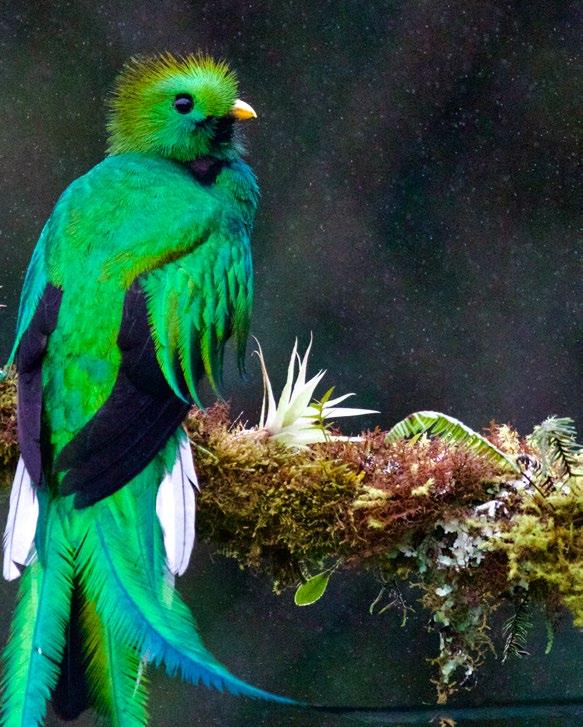
Learn more about this spectacular bird in these Howler articles:s:
• It’s Quetzal Time! Ripe Avocados
Make San Gerardo de Dota a Birding
Paradise
• Costa Rica’s Shangri-La: Los Quetzales National Park
• Behind the Image: Resplendent
Quetzal
Photography as Ecotourism
Bird in Brief: The Resplendent Quetzal (Pharomachrus mocinno)
• The only bird on earth with the word “resplendent” in its common name
• In several Mesoamerican languages, the word “quetzal” means sacred, erected, or precious
• Revered in Aztec and Mayan cultures as sacred — “god of the air” — and as symbols of light, freedom, and wealth
• Declared as Guatemala’s national bird in 1871, as reflected in the country’s coat of arms, flag, postage stamps and currency
• Territorial, monogamous breeders, but solitary during the non-breeding season
• Both males and females are involved in all breeding aspects, from nest building and incubation to rearing young fledgelings
• Young males take up to three years to grow their long tail feathers to the full length
Source: whitehawkbirding.com
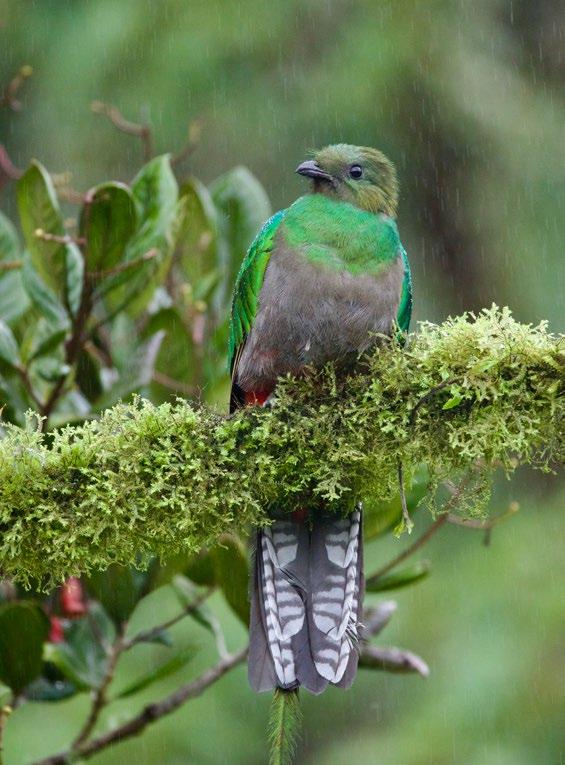
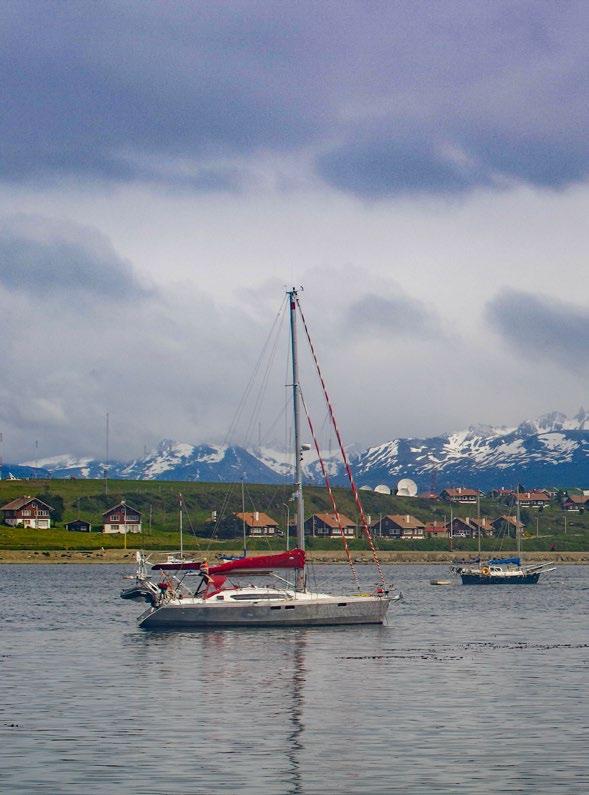
In 1520, Ferdinand Magellan, on his voyage of circumnavigation trying to discover a different route to the “Spice Islands,” sailed through a calmer, safer shortcut through the tip of South America. Traversing the strait that bears his name, the expedition crew spotted many fires of the native peoples along the coast. Hence, the area was named Tierra del Fuego — land of fire.
Today, Tierra del Fuego — an archipelago of islands that are part of Chilean and Argentinian Patagonia — is still a unique, wild and must-see part of the world.
You can choose two cities of entry, one in Chile and the other in Argentina. We started in Punta Arenas (two words, not one like in Costa Rica), Chile. Punta Arenas considers itself the southernmost city on the South American continent. Larger than you might
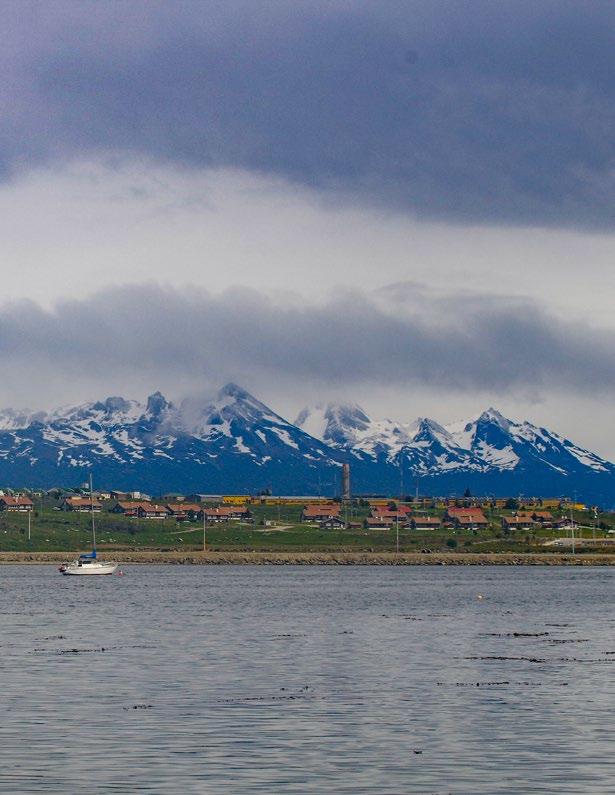
think, this city of 150,000 people, with an international airport, is the gateway to Torres del Paine National Park to its north, and also the oil fields of Patagonia, and is the supplier to research centers and tourism in Antarctica. Surprisingly Victorian in architecture and cosmopolitan in nature, Punta Arenas features a central park containing a famous, and controversial, sculpture of Magellan.
From Punta Arenas you take a ferry across to Isla Grande de Tierra del Fuego. The 90-minute trip — longer if the ferry is going against the notorious Patagonian winds that we battled while we were there — arrives in the town of Porvenir. Porvenir has an interesting history that starts in the 1880s. That’s when the area was opened by the government of Chile and settled by sheep farmers and gold prospectors, mostly coming from Croatia. The Croatian influence is still strong there today.
Standing on the edge of the Straits of Magellan is one of those amazing things you never thought would be on your bucket list.
The must-see attractions in Porvenir start at the local museum, which exhibits artifacts from the early settlers, including a rebuilt interior of a pulperia. The term pulperia for a small shop in Chile predates its use in Costa Rica, but the word roots and derivation is just as murky. The museum also has a history of the Selkim, the original people on the island when the Europeans arrived. The tale is sad and horrible, as they were systematically eliminated, with even a bounty and hunting of them allowed. By 1980, the genocide left only a handful of indigenous people.
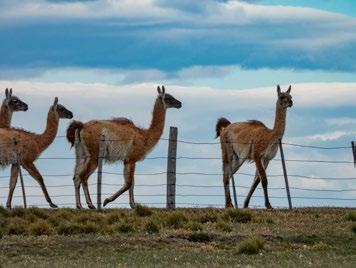

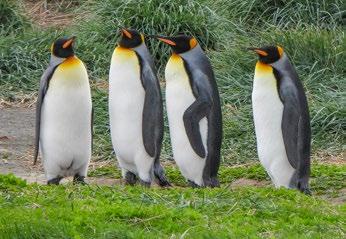
Outside of town you can visit Laguna de los Cisnes (Swan Lake) — a misnomer since the highly saline lake environment supports mostly flamingos. The protected park here contains stromatolites, the oldest known living organisms and a precursor to modern algae. Fossil stromatolites one billion years old have been found. Live ones are found today only in a few parts of the world — Australia, Canada, Turkey and here in Chile. These living fossils can be seen after a long, cold and windy walk out a boardwalk almost a kilometer long.
On the outskirts of town, near the ferry, is a modern lighthouse on the Chilean end of the Straits of Magellan. On the other side of the Strait, in Argentina, sits another older lighthouse that was the inspiration for Jules Verne’s last novel, “The Lighthouse at the End of the World.” Standing on the edge of the Straits of Magellan is one of those amazing things you never thought would be on your bucket list.

Click here for the rest of the story and more photos



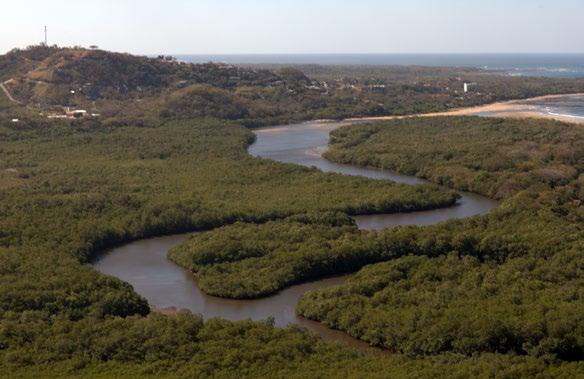
After living here for over three years, I was looking forward to this trip to gaze at the beauty of this region of Guanacaste via air. The gyrocopter was blue like the sky above us. The pilot did the pre-flight checklist and radioed the area control tower about our take off. Over the intercom, he said, "We're good to go."
The last time I was in a helicopter type of aircraft was in my Navy days at Naval Air Station, Meridian, MS. I had the opportunity to fly in the Huey (UH1N) on several occasions. But this gyrocopter was small and slick. Yet there was no fear, for I had every confidence in our pilot's skills.
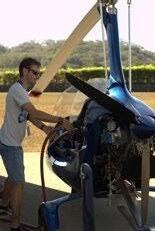 Story and photos by Terry Carlile
Story and photos by Terry Carlile
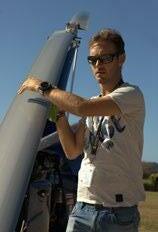
I had every confidence in our pilot's skills.
We took off and headed toward Brasilito. I saw Huacas, the business center, and then CRIA (Costa Rica International Academy). We flew over my casa at the Village, then over Reserva Conchal, the golf courses and then Brasilito. Mar Vista's property was amazing to see from the air.
Of course, soaring over Playa Flamingo gave us a great view of the new marina, the boats anchored in the bay, before turning back south along the coastline.
Manta rays were spotted along with some turtles. Tourists looked up and waved as we returned the greeting. It was neat to see the brown beaches of Brasilito, then the one rock intrusion in the water before viewing the beautiful white shells of Playa Conchal.
We continued flying over a wide stretch of beaches on the way to Playa Grande and then Tamarindo. Before finishing the tour, we descended lower above the estuary to see if any crocodiles could be seen. Today was a "no," but it was no less amazing to see the almost-untouched beauty of the water, land and lagoon topography
I'd highly recommend this adventure be added to your bucket list. It’s a higher level of fun and you'll see the beauty of Costa Rica from a totally different perspective.

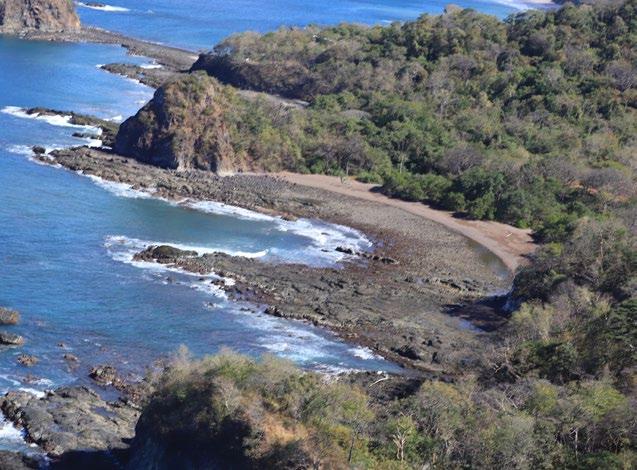
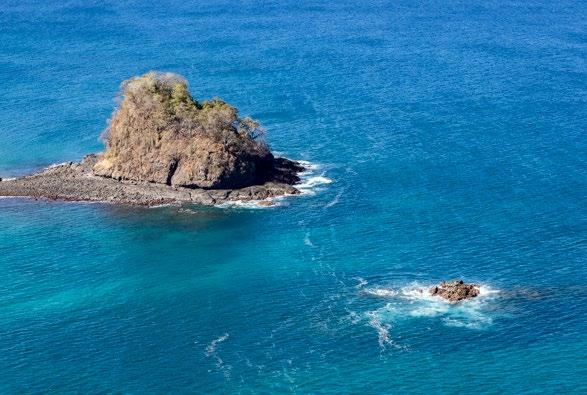
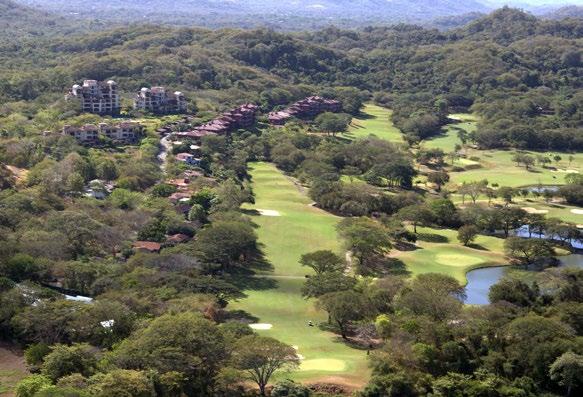
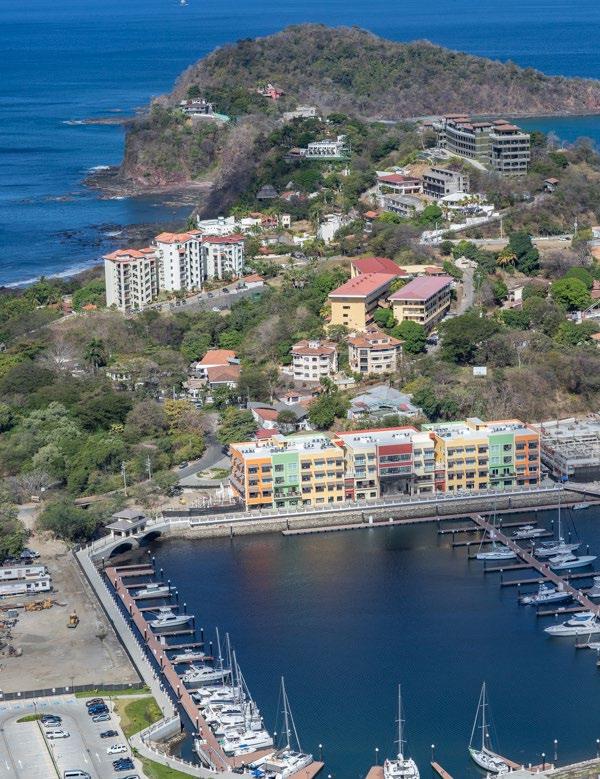
Which town?
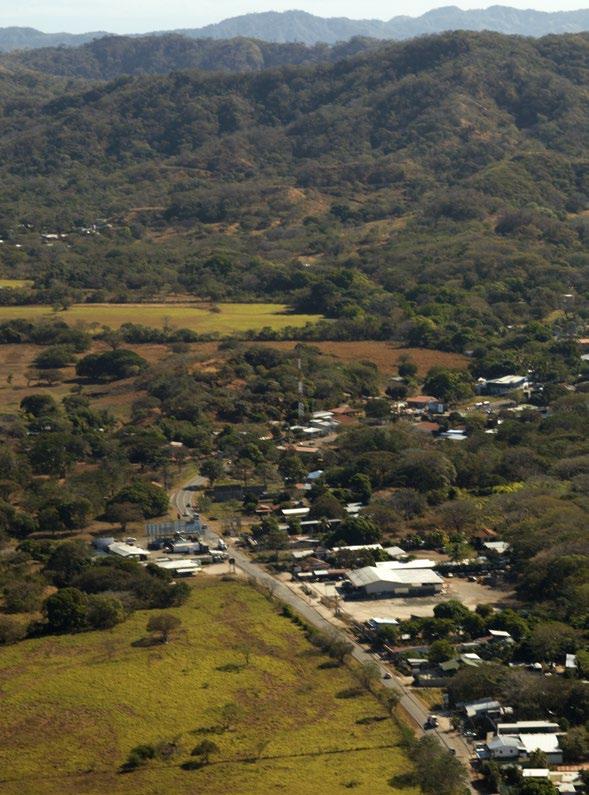
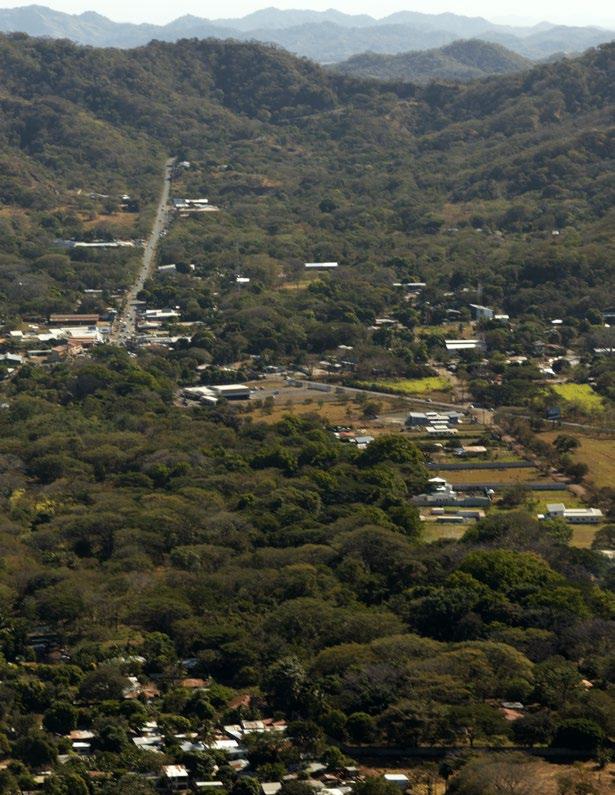
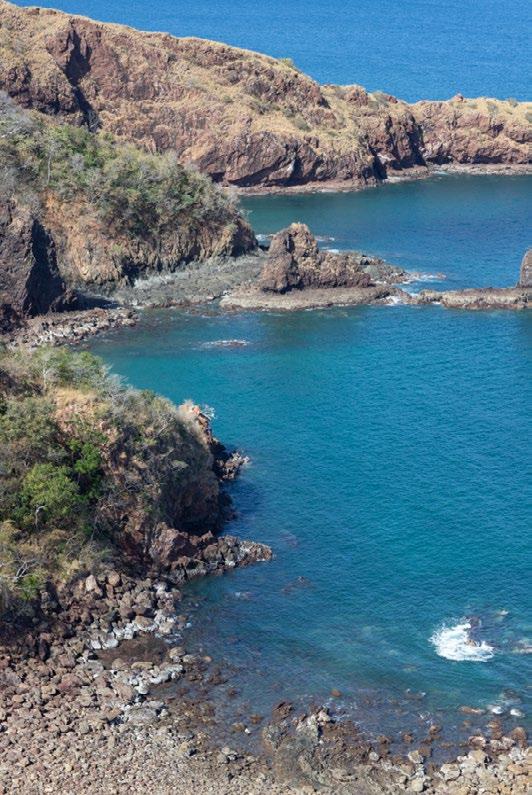
See miles of beautiful beaches. Places to escape, snorkel, fish...relax. You may see manta rays, fish and turtles from this birds-eye view.

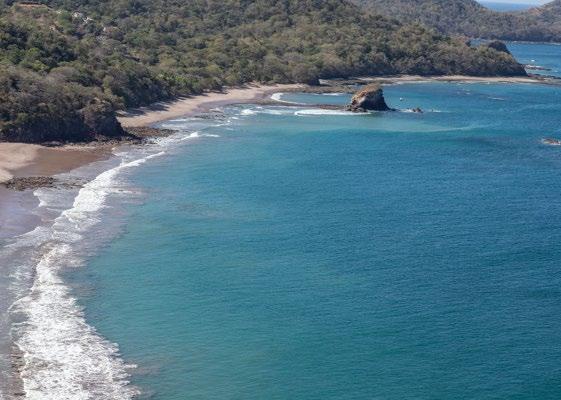
 By John Brockmeier
By John Brockmeier
Ihad heard about Diamante Eco Adventure Park even before moving to the Gold Coast area of Costa Rica. Looking forward to my first visit to the park, I could barely contain my excitement about the thrill of experiencing Central America’s longest dual action zipline. There had to be a good reason why this so-called Superman line is ranked in the world’s top five of its class.
On arrival, we entered the gates and drove to the parking area, where a shuttle bus took us up the steep incline to the Diamante office. Being greeted with the full open Pacific panorama off Playa Matapalo was spectacular. The sense of tranquility
was mesmerizing as we relaxed and enjoyed the view until everyone in our group arrived. Still, my anticipation of the coming adrenalin rush was no less intense during the wait.
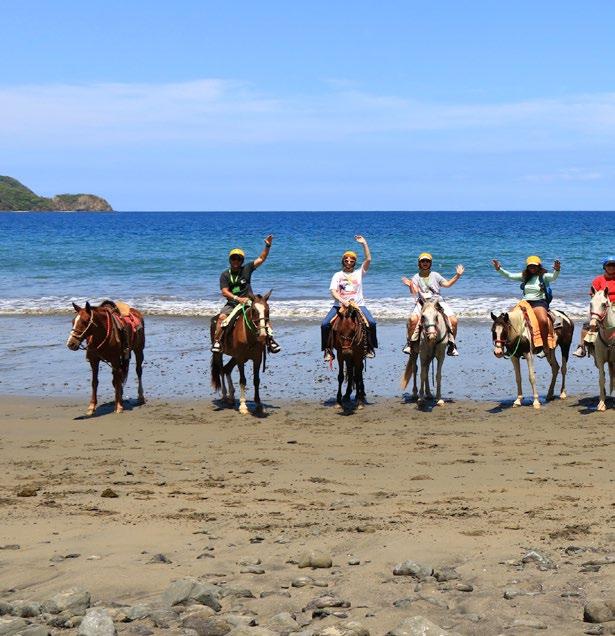
In due course, I discovered for myself what all the fuss is about. The Superman zipline lived up to all my heart-pounding expectations and then some. One of the interesting features I noticed was the self-braking system. Its advantages became apparent when a couple of older people in front of me were descending, and I wondered how they would handle stopping. Then it was my turn to be put on the line and sent whizzing down.
Nearing the end, I realized that almost anyone can enjoy this experience regardless of athletic ability, thanks to the mechanism that automatically slows you down for a comfortable landing.
After finishing the lines, we made a tour of the Diamante animal sanctuary. It was a rare opportunity to marvel up close at iconic Costa Rican species in natural enclosures that simulate their wildlife habitats. These animals are very well cared for, having been rescued and rehabilitated in circumstances that would make release into the wild not feasible for various reasons.
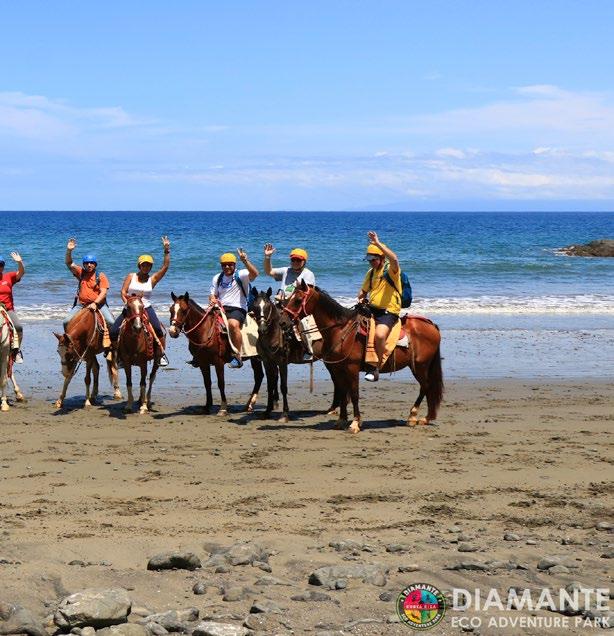
Walking over the swinging bridge, we peered down at the hungry crocodiles, in awe of their massive size and power. The jaguar brothers, their playfulness belying a fierce appearance, seemed to be consciously entertaining the onlookers. A puma simply stared us down as we observed. Monkeys chattered and played to their audience’s delight. The highlight was seeing Lucy, Diamante’s legendary sloth and her companions. By lucky coincidence, we encountered her on the ground instead of in the canopy, where sloths spend most of their time.
Entering the birdcage, we were also richly rewarded at the sight of so many species, including a stunning toucan. Lots of talkative parrots wanting to converse and a background chorus of chirping enhanced our multisensory experience
We ended our visit to Diamante with a wonderful buffet lunch, again sitting back and relaxing against the magnificent ocean backdrop. We were already planning a future return trip for a horseback riding adventure, either in the backwoods or on the beach, and some ATV fun.
Diamante Eco Adventure Park is a short 20-minute drive from Playas Del Coco, and about 40 minutes from the Playa Flamingo area.
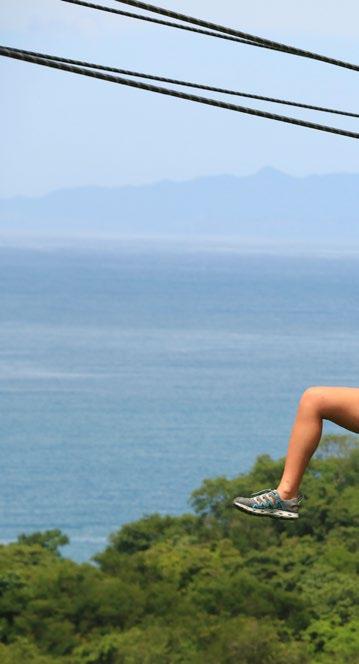
The Superman zipline lived up to all my heart pounding expectations and then some.
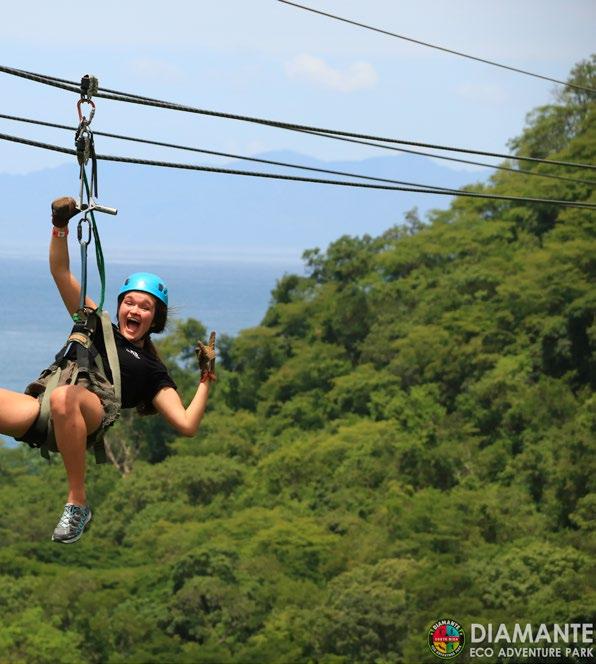

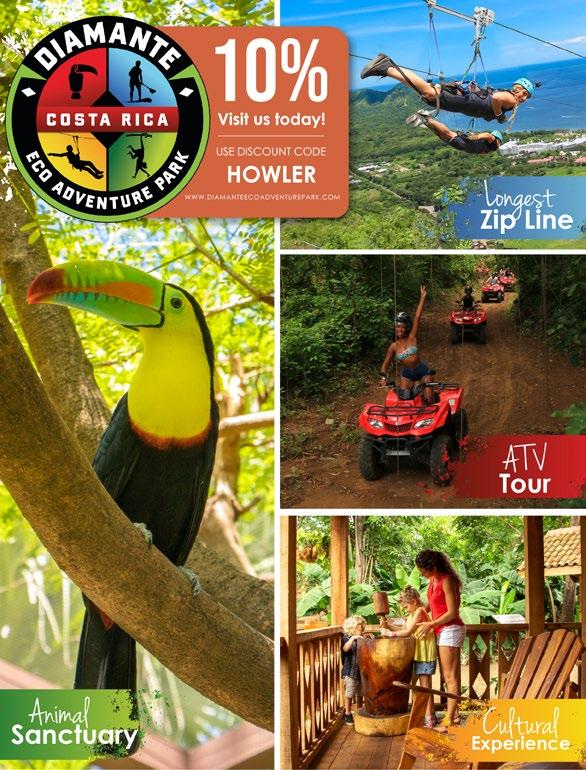
Brought to you by Deals in Costa Rica
One of the beautiful aspects of Costa Rica is the variety of opportunities for adventures. Literally there is something for everyone. The extremes are real, from being lazy chillin’ in a hammock by the beach to trekkin' a volcano trail to adrenaline rush jumps.
Deals in Costa Rica presents a small fraction of the adventures that await your next vacation/escape. We highlight examples in just five regions to intrigue your adventuresome spirit. Click on the buttons for more information.

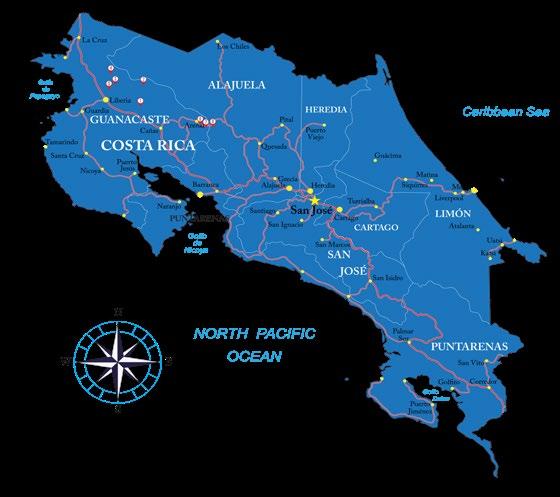
There are two major international airports. Check to see which one is nearest your desired locations to visit.
For Ticos, the term "pura vida" is an expression of happiness, optimism, and living life to the fullest. It is impossible to visit Costa Rica without hearing this phrase continuously.

1. The Pura Vida Show Begins
2. Living a Biocentric Life
3. Spanish: Real Estate Terms
4. Peptic Ulcer Disease
Other popular articles:
• Solutions to the 28 Cons
• Health Tips for Hot Tub Enjoyment
• Fiercely Feminine
• Wisdom from Albert Einstein
• Costa Rica Takes Top Recognition in Coffee International Challenge
• Medical Conditions for Air Travel
• Cookware Awareness: The Trouble with Teflon
• Contact Dermatitis
• Properly Cleaning Your tongue
• What You Eat Has the Power of What You Can Achieve
See all Pura Vida articles which are translatable into 12 different languages, top 4:
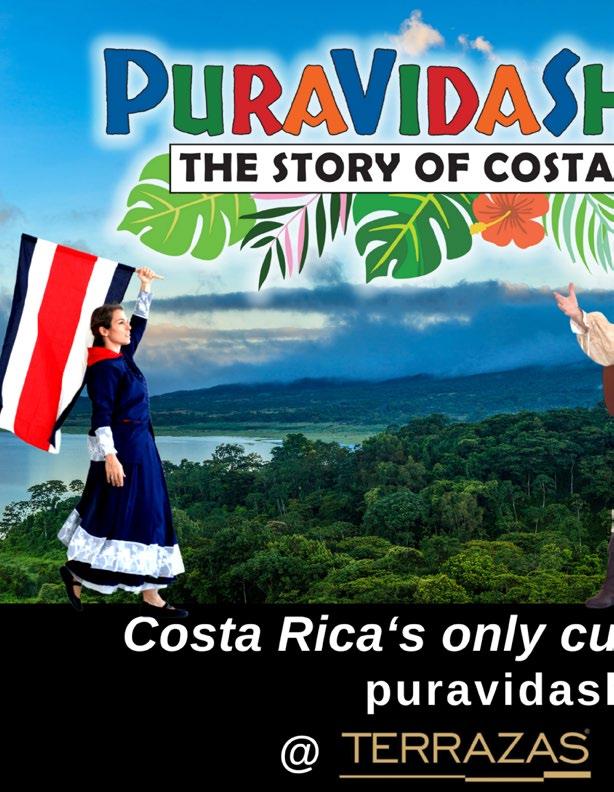
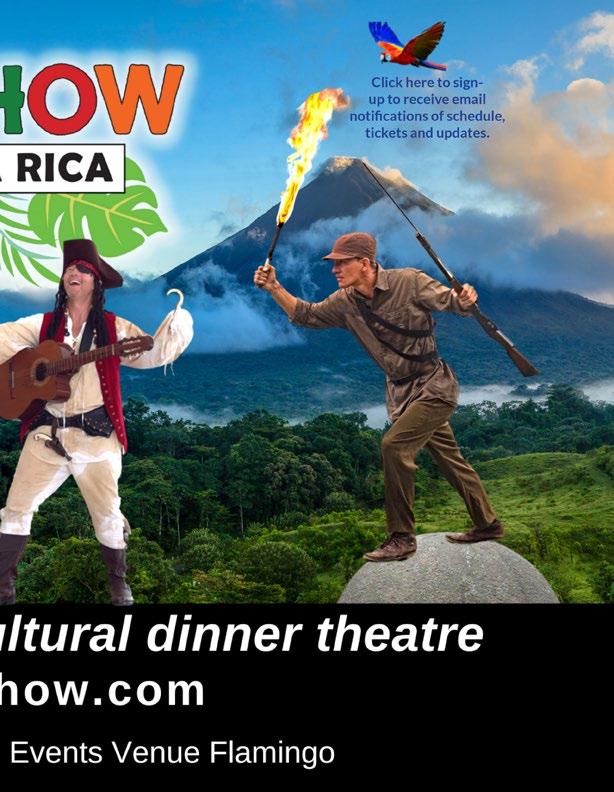
The greatest threat to the survival of humanity is anthropocentrism, the worldview that human beings are dominant over all other species, more important than all other species, and that all of creation came into being specifically for one special species — ourselves.
This anthropocentric paradigm is contrary to all the laws of nature and certainly contrary to all the laws of ecology.
A few years ago, journalist Brit Hume of the FOX network called me up to ask if it was true that I had publicly said that worms, trees, bees and bacteria were more important than human beings.
I answered that yes indeed, I did say that.
In a somewhat shocked voice he demanded, “How could you say something so wrong and so outrageous?”
I answered, “Because I am not wrong. Worms, trees, bees and bacteria are far more important than we are, and the reason is that these species can live on this planet without humans, but we humans cannot live here without them. We need them. They don’t need us and that makes them more important than us.”
All of the dominant religions in human society are anthropocentric. They all hold the position that humanity is dominant and better than all other species. Some hold to the idea that we are the very image of a god that we actually invented, to justify our dominance and superiority.
In the name of this fabricated god or gods (there have been thousands of them), humanity has committed horrific atrocities. Because of this collective form of mass psychosis, wars have been fought, people and animals have been sacrificed and tortured, lives have been ruined and wholesale destruction has been inflicted upon the living ecosystems of the planet.
Years ago, I attended an ecological theological conference in Seattle. In attendance were priests and ministers, rabbis and mullahs, and representatives of all the major religions. For the most part everyone was open minded, but when I gave my talk on biocentrism, an evangelical Christian loudly and quite rudely interrupted my talk to accuse me of being a pantheist. I answered that I was not, but if I were, what was his problem with that? He literally screamed that worshiping the creation instead of the creator was a mortal sin for which I would be going to hell.
“The problem with that,” I replied, “Is that I don’t believe in your version of hell, but because you do, you will be going to hell also because you will be going to Catholic hell, Presbyterian hell, Muslim hell or any of the other hells that other religions believe in.”
I then went on to say that I did believe in heaven and hell, but unlike him, I have personal experience with both.
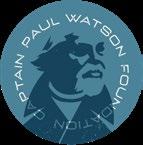

Heaven is the natural world; it is a walk through the forest, a climb of the mountains, a canoe trip down a river, a sail across the ocean. It is the taste of salt from the sea, the smell of flowers, the feeling of warm rain upon our skin. It is a world of wildness and wilderness, of a diversity of wondrous species all interdependent upon each other for survival and happiness. It is a world that provides all the security and comfort of belonging, of knowing who we are and our connections to everything else.
For the rest of the story, click here:

Heaven is the natural world.
Our communities in Costa Rica depend on the local park or square for family and town events. So often during the late afternoon you can see children playing with one or both parents. It's a place of connection and community, and should be an asset to the community.
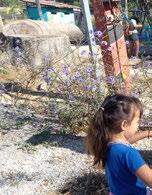
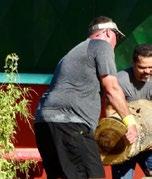
Sometimes, for one reason or another, certain communities have areas that need the attention of the residents and others who care. This was the case in Brasilito recently. For more than a year, cut-down logs covered all areas of the park, and weeds had taken over. Families just passed by with the gates locked as a daily reminder of this unusable space. Families just passed by with the gates locked as a daily reminder of this unusable space.
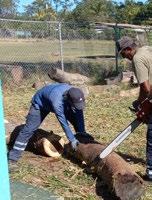
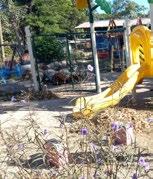
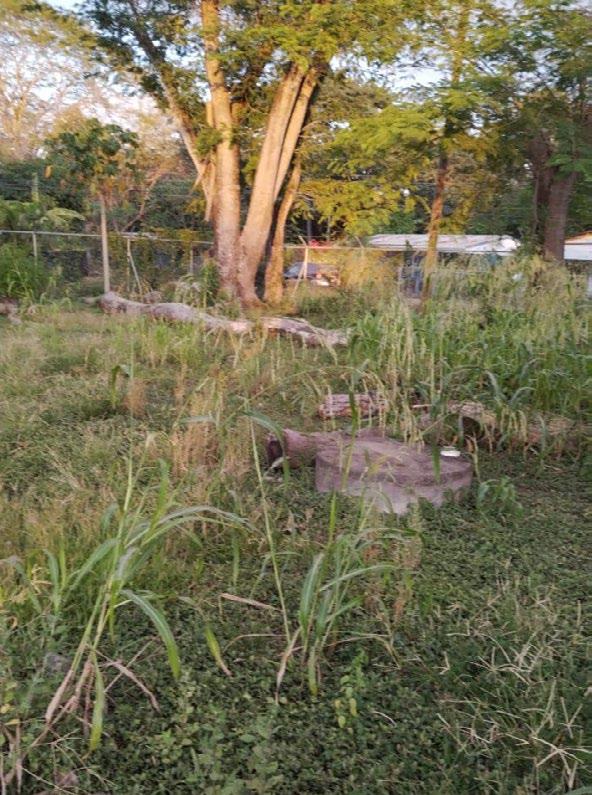
That all changed in January 2023, when a group of total strangers — Brasilito citizens, a local groundskeeping company, church members and neighbors — gathered to revitalize the park.

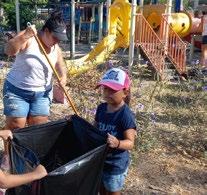
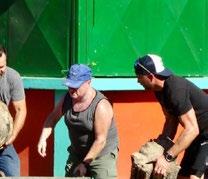
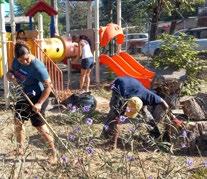
As you can see in the photos, what a difference it makes when a community comes together.
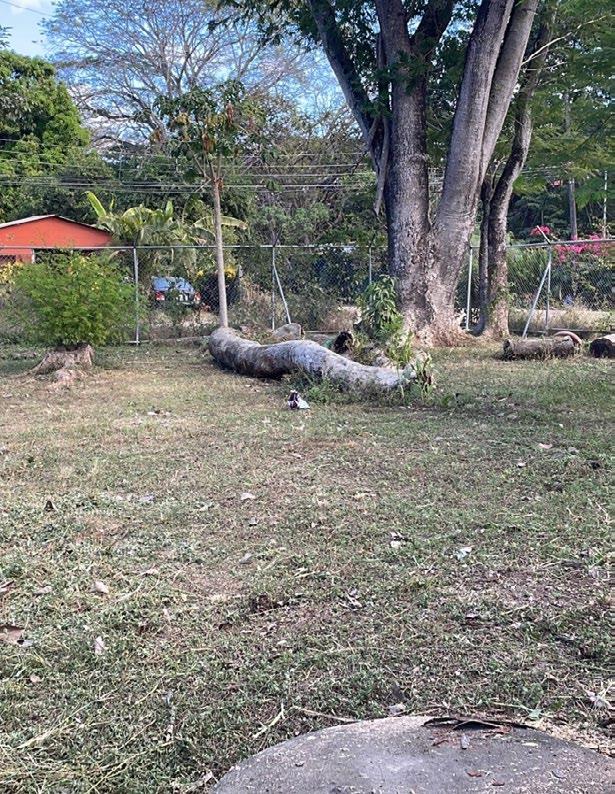
Apeptic ulcer is a sore in the lining of the duodenum or stomach that penetrates through several tissue layers in severe cases. When food reaches the stomach, gastric juices — containing hydrochloric acid and an enzyme called pepsin — start flowing to aid the digestion of food. Peptic ulcers are commonly found in either the stomach (gastric) or in the duodenum (duodenal). Ulcers can also occur throughout the digestive tract.
To protect the stomach wall, glands in the stomach lining secrete mucus. This combines with bicarbonate from the pancreas to help neutralize the powerful digestive acids. Peptic ulcers occur when there is either too much acid in the stomach or too little of the substances that protect the digestive tract lining.
Emotional stress may cause the stomach to churn out excess gastric acid and pepsin. Cigarette smoking and aspirin overuse are key risk factors. Aspirin interferes with the protective mucous lining of the stomach and duodenum. If you regularly take aspirin or other over-the-counter medications you should inform your doctor.

Sometimes ulcers do not cause any pain or major discomfort. A duodenal ulcer reveals itself by symptoms that are remarkably similar in all sufferers: a sharp, annoying pain and a burning sensation at a point between the naval and the lower tip of the breastbone. Symptoms are worse from 30 minutes to two hours after a meal, or in the middle of the night after food has left the stomach and acid bathes the sore. Antacids or snacks often relieve the pain.
Symptoms of a gastric ulcer are similar to those of a duodenal ulcer but less predictable. Some patients may not experience pain relief immediately after eating. In fact eating may make the pain worse because the food stretches the inflamed ulcerated stomach. Antacids may not relieve gastric ulcer discomfort.
If there’s still a question about the diagnosis of symptoms, a doctor may use a fiber-optic endoscope to check for an ulcer. The endoscope is a highly flexible viewing tube with a bright light at its tip. It is passed through the mouth and down the esophagus, allowing an excellent close up view of the upper digestive tract lining. An x-ray study called a G.I. series is rarely used now, due to false negative interpretation and excessive radiation.
Doctor-prescribed medication will relieve the pain and heal the ulcer. Up to 95% of all ulcers will heal within four to six weeks of treatment. It’s very important not to stop taking medicine just because symptoms go away. Symptoms may vanish a day or so after medication is started, but as many as eight weeks of treatment can be necessary to heal completely.
There is no evidence that bland ulcer diets are beneficial. Common sense is your best bet and avoiding any food that causes pain and discomfort. Caffeine-containing drinks, alcohol, and highly spiced food should be avoided. Smoking is also very detrimental.

Sometimes ulcers do not cause any pain or major discomfort. Click here
Agente de bienes raíces — real estate agent / real estate broker
Agente del comprador — buyers agent
Agente del vendedor — seller’s agent
Alistado — listing
Alistado exclusivo — exclusive listing
Alistado no exclusivo — open listing
Cadena de titularidad — chain of title
Cambio del dólar — exchange rate in dollars
Contingencia — contingencies
Contrato — contract
Costo de cierre — closing costs
Cuenta corriente — checking account
Cuenta de ahorros — savings account
Diligencia debida — due diligence
Escritura de propiedad inmobiliaria — deed
Factura digital — digital receipt (electronic invoice) is now required under Costa Rican law
Financiamiento — financing
Garantia — escrow
Hipoteca asumible — assumable mortgage
Imobiliário — property or real estate
Impuestos — taxes
Inspeccion — inspection
Ministerio de Hacienda — CR taxation ministry, where you register to pay taxes; only a passport number is required
Oferta — offer
Perico — appraiser
Prestamo — loan
Prestamo puente — bridge loan
Préstamo reembolsable al vencimiento — balloon payment
Prima — collateral
Servidumbre — easement
Título limpio — clear title
Valoracion — appraisal

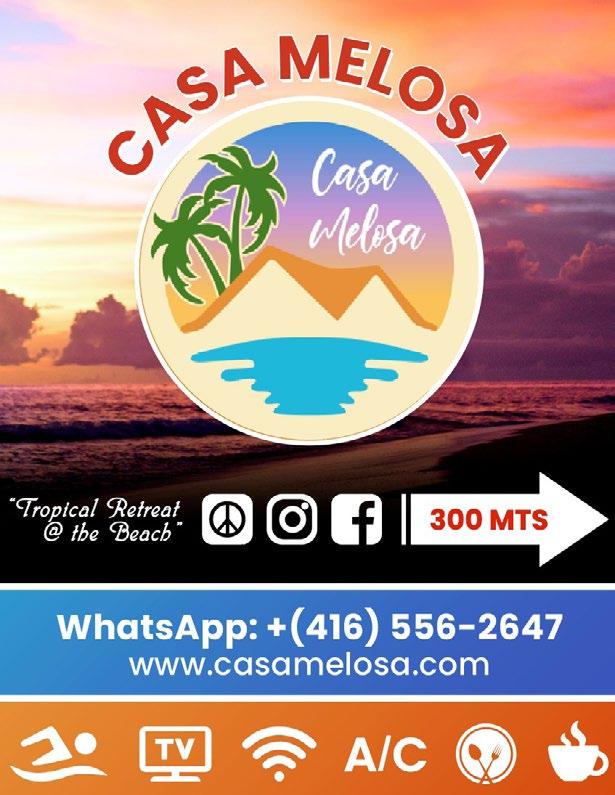

 By Captain Paul Watson Founder – Sea Shepherd 1977
By Captain Paul Watson Founder – Sea Shepherd 1977
 by Daniel Oses Ivankovich
by Daniel Oses Ivankovich
Costa Rica has legalized hemp production and commercialization, as well as cannabis for medicinal and therapeutic purposes. This article provides an overview of what this means and the steps involved for those eligible.
In March 2022, the congress approved the law N° 10113, “Ley del cannabis para uso medicinal y terapéutico y del cáñamo para uso alimentario e industrial.” The new law was published in La Gaceta number 46 on March 9, 2022.
Hemp and marijuana plants have some general similarities as a species of the cannabis genus. Some crucial differences between them are as follows.
• Non-psychoactive: Hemp has a minimal percentage of tetrahydrocannabinol (THC), the central molecule related to marijuana’s neuronal effects. Hemp plants contain around 0.3% of THC, while marijuana’s THC content ranges from 5% to 35%, depending on the strain.
• Growth height: Hemp plants can reach a height of 4 meters, while marijuana plants can grow up to 2 meters.
• Growing cycle: Hemp crops take around 120 days to grow, compared to 90 days for marijuana.
• Usage: Hemp can be used in the construction, food, health, and clothing industries. Marijuana is commonly used for medical, therapeutic and recreational purposes.
How is the legalization of marijuana and hemp going to work in Costa Rica?
The Costa Rican government will issue licenses to authorize the cultivation, harvesting, processing, storage and transport of medical marijuana and hemp. In addition, permits can be issued to import and distribute products made of hemp or marijuana.
License applicants must have no criminal background records related to drug dealing, corruption, or money laundering, and shall comply with sections 8, 9, and 10 of Law N° 10.113 and its regulation. The basic steps and requirements for license applicants are outlined below.
• Legal capacity: Individuals of legal age may act on their own or represent a corporation, with proof of the corporation's legal existence and good standing.
• Description of the project: A detailed description of the project and its financing sources must be provided, subject to a background check performed by the appropriate authorities.
• CCSS: License applicants must be registered as employers in the Caja Costarricense de Seguro Social (social security) and be up to date in all municipal and tax obligations.
• Government institutions' periodic inspections: All authorized projects will be subject to regular checks performed by the Instituto Costarricense Sobre Drogras (Costa Rican National Drugs Institute), Ministerio de Agricultura y Ganadería (Agriculture Ministry), and/ or Ministerio de Salud (Health Ministry). These institutions can take samples of the crop or the product that is being commercialized.
After the documents mentioned are submitted, the government will have up to 30 days to review them and give a formal resolution.



• New Obligations for Inactive Corporations
• Options for Real Estate Subdivision in Costa Rica
• New Capital Gains Tax in Costa Rica
• Corporation Basics: Benefits and Obligations
• Costa Rica Residency
• Home Luxury Tax 2022
• FAQs for Expats
• Mandatory Registration of Rental Properties for Non-Traditional Tourist Accommodations
• The Eviction Process in Costa Rica
• Advance Directives for Medical Decisions
• New Laws Provide Second Chance for Corporations Being Dissolved or Already Dissolved
• Digital Nomads: Work Remotely From the Land of Pura Vida!
• Chartering in Costa Rica for International Vessels is Allowed















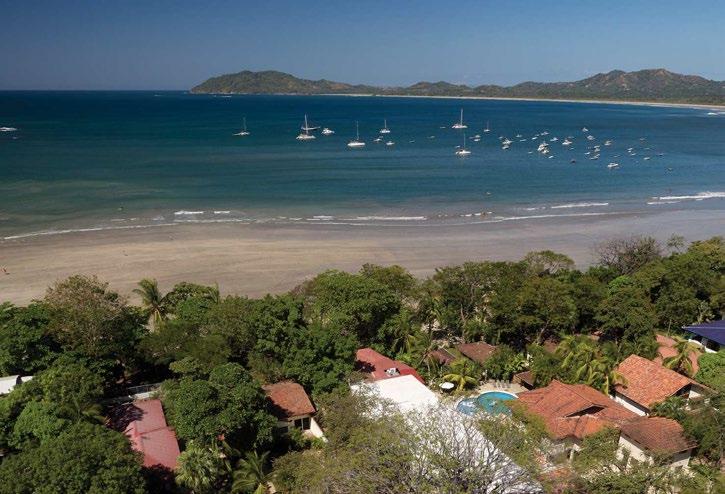
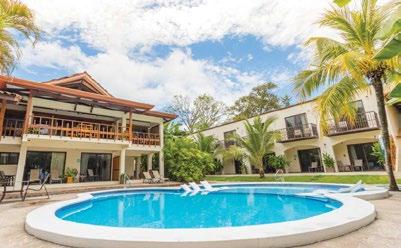
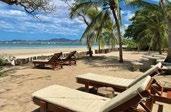


Sun Real Estate specializes in the Guanacaste Real Estate Market.

We have a significant amount of unique Mountain Real Estate, Beach Properties or just beautiful Farm Land to offer.

As an independent Real Estate Broker, our experts cover a variety of locations ideal for living, retiring or investing in Guanacaste.
Hot Springs and Mountain Farms, such as Residential and Building lots, Commercial Land, Hotels, Titled Beachfront Farms, for development also very huge properties.
Business ideas are what Sun Real Estate listings include.

Johannes Valentin Beriè, known as Hans is a German entrepreneur and the owner of different companies, working as a proven and successful businessman, for 30 years in Costa Rica, with different kinds of views, and greatly connected everywhere, to get things done.
With Sun Real Estate he formed a team of specialists and solvers of critical situations, for any type of happenings, to lead the clients to a positive outcome.
Hans never lets his clients run alone before and after a successful closure, he always watches them and makes sure they are in a safe place.

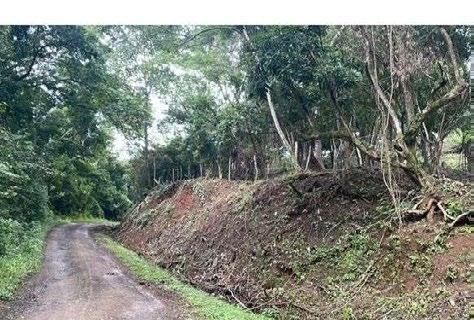
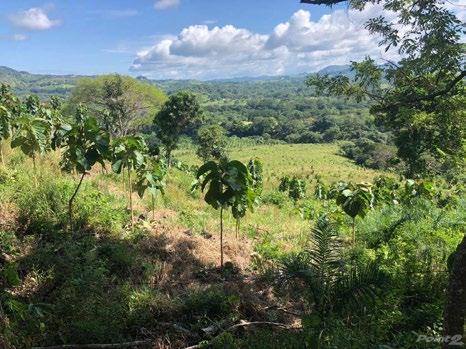

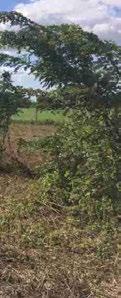


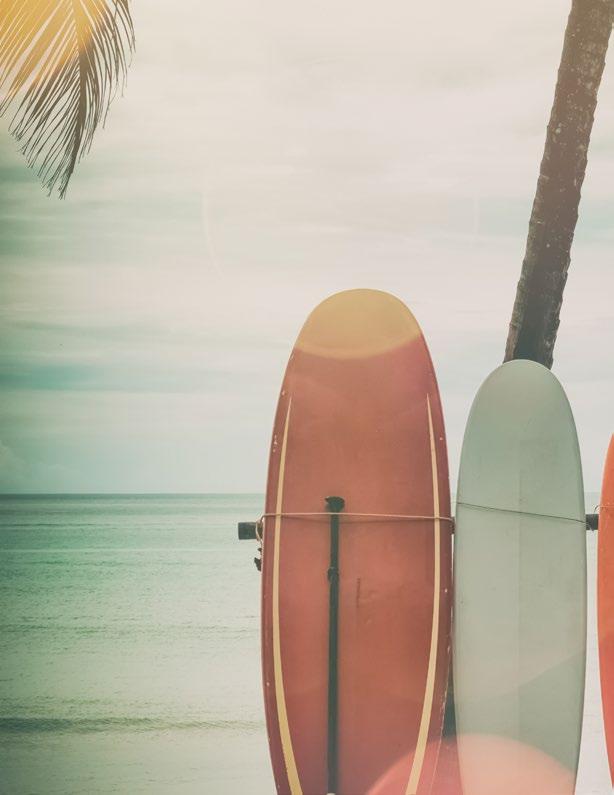
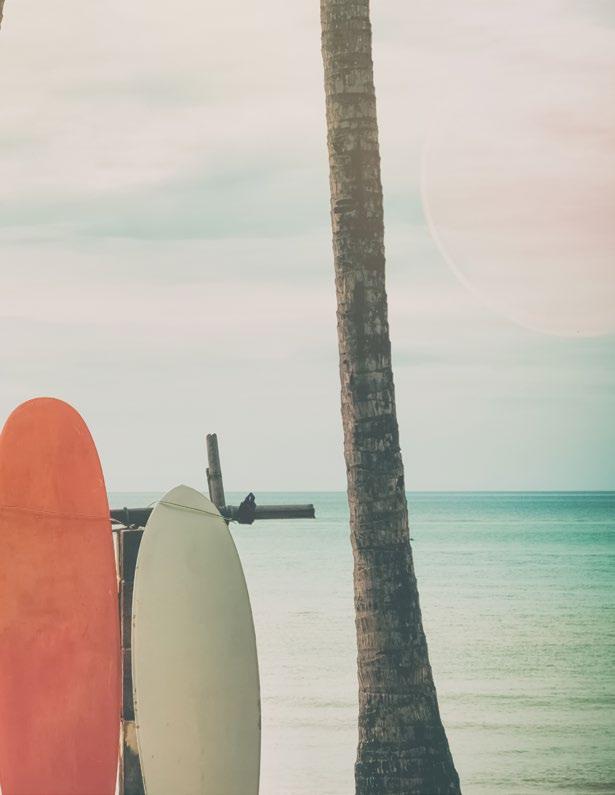
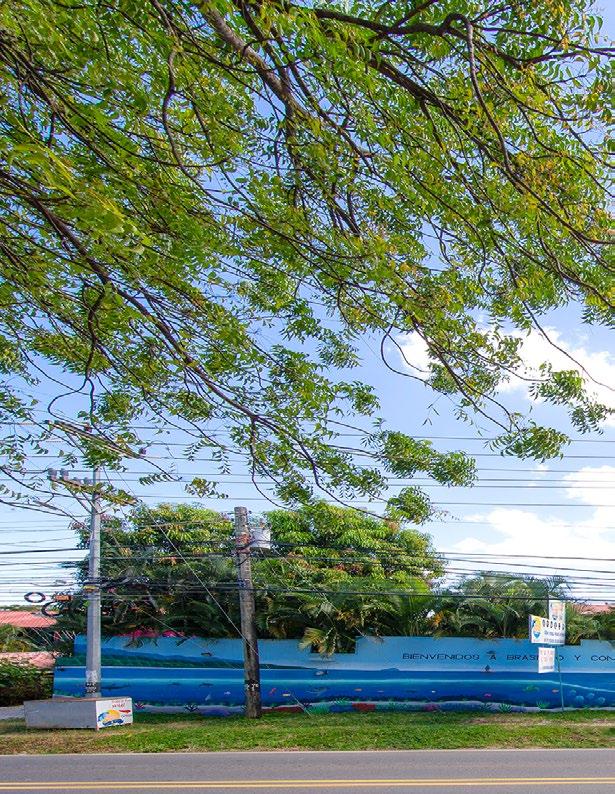
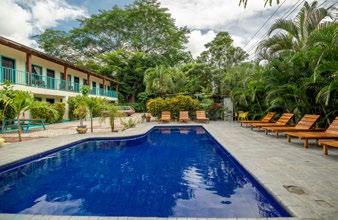
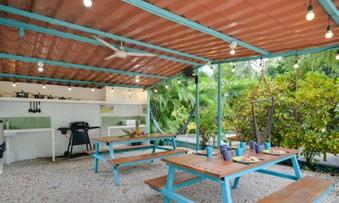
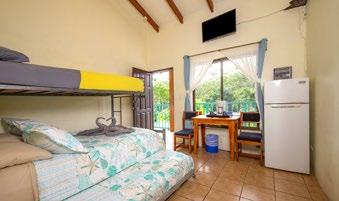
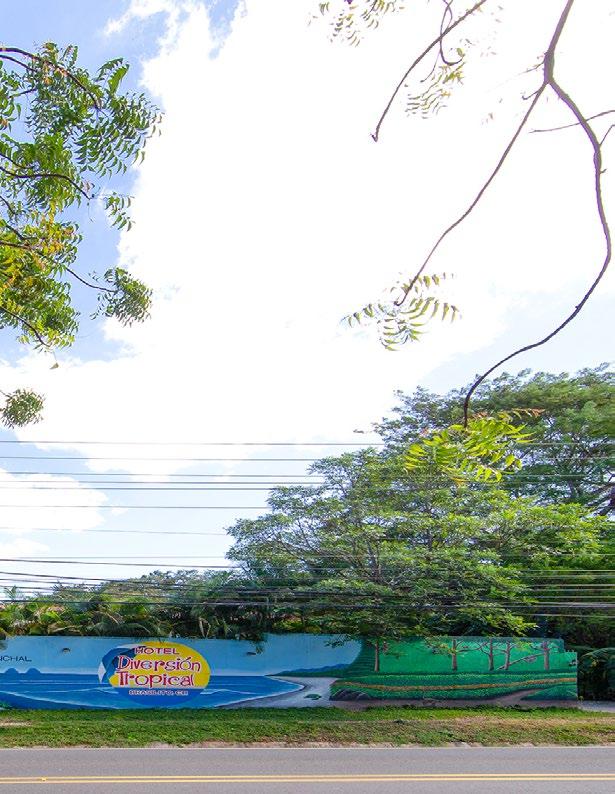
• 45 minutes from Liberia International Airport
• Brasilito, Guanacaste
• 1 km from the most beautiful beach in the region, Playa Conchal
• 10-12 restaurants and shopping within 1 km
• Built in 2006
• Ten rooms
• Turnkey operation
• Future growth is possible
Click here for more details.
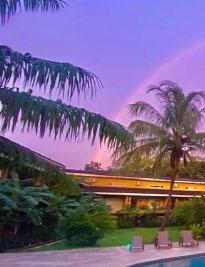
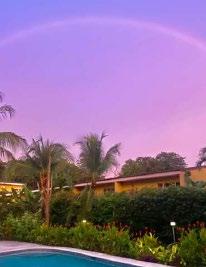 Photo by Deanne Willock Wasson
Photo by Deanne Willock Wasson


Sponsored Content
Both condos are modern, with three bedrooms and three bathrooms, located close to seven of Costa Rica's most beautiful beaches. They offer 1,150 square feet of air-conditioned space, plus a back porch, private rear garden, parking pad for two cars, and a paved roadway in a safe, friendly gated community.

The HOA fee is a low $175 per month with excellent property management and good reserve funds.
The open floor plan offers a spacious feel. The bedrooms have built-in closets and ceiling fans. The kitchen is equipped with a stainless steel stove and fridge, and a white washer/dryer unit. Countertops in the kitchen and bathrooms are all granite. There are ceramic tile floors throughout and screen doors on the front and back doors. These condos come fully furnished with everything you need to move right in.
The rancho and community pool are great for outdoor entertaining and a cool swim. The condos are located in Matapalo, a quaint Costa Rican town with convenience stores, where you will hear and see howler monkeys, birds, and iguanas.

It is a short drive to quality 24/7 medical care, several restaurants, and shops. Playa Grande (famous for surfing) is minutes away! Conchal Beach is 10 minutes the other way. Even the Liberia international airport is only a 50-minute drive.



Email for further information or to schedule a showing. crrealescapes@gmail. com or WhatsApp: +506-8995-5497

These condos come fully furnished with everything you need to move right in.


This
Sponsored Content
High-quality construction and design in a quiet secluded area — it’s all yours, within an easy 10-minute drive to the area’s beaches, and just 20 minutes from the popular communities of Tamarindo and Flamingo.
Special spaces throughout
This classic Spanish hacienda-style house optimizes all its tropical living space, inside and out: 125 square meters under interior roof, expansive front and back patios measuring 55 square meters with a two-vehicle carport. This is all situated on a 1,645 square-meter, treecovered lot in a small, off-the-beaten-path subdivision of quality homes.
home offers the best of both worlds — privacy and convenience.
The three-bedroom floor plan incorporates two bedrooms / common bathroom and a master bedroom / bathroom. The open great room features exposed beams and high vaulted ceilings encompassing the spacious kitchen, dining and entertainment areas. The covered patios bring the tropics to your doorstep.
As a turnkey property, “Casa Escondite” is completely ready to live in or rent out. The home is tastefully finished and fully furnished with all necessities.
This home for sale in Matapalo, Guanacaste, Costa Rica, offers the best of both worlds — privacy and convenience. With no through-traffic at this dead-end, low-traffic gravel road, the only noise is that of monkeys and birds.
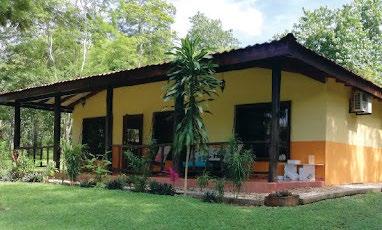
The house is located just 450 meters off the main road and two minutes either way to the small towns of Matapalo or Huacas for shopping convenience. The drive to Playa Grande or the south end of Playa Conchal takes just over 10 minutes. Tamarindo and Flamingo are both a 20-minute drive.
The subdivision: Pase de Terras
Pase de Terras is a residential oasis with a sense of remoteness. The landscape configuration of buildings and trees ensures adequate shade and breeze for reduced reliance on air conditioning, as well as protection from the strong north winds and dust during the dry season.
For more information
Contact: crrealescapes@gmail.com or WhatsApp +506-8995-5497 to schedule a showing. Brokers welcome.
